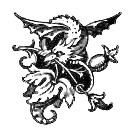35,312 words
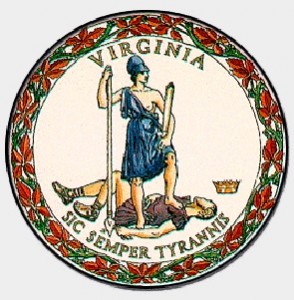
INTRODUCTION
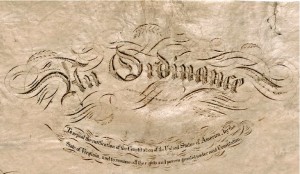
This is where things fell apart. And Sumter.
More than one historian has called the conclusion of the Virginia Secession Convention in April, 1861 the most fateful moment in American history.
What a story. This is a chronology of eyewitness accounts and direct quotes of this tumultuous and very pivotal event. The personalities and intrigues are just one second and inch shy of blood on the floor. What happened starting the night of April 16th – the night before the vote on whether to secede – Henry Wise and John Imboden did what we nowadays call “hatching a coup.” Now, I’m not complaining – a war was starting up – but they too saw what they were doing in those terms at the time of execution.
The most interesting revelation for me from this convention and the war’s parallel inception was Wise’s reaction to first seeing from his clerk the news of Lincoln’s proclamation for volunteers from Virginia on April 15: “in utter disbelief,” according to his clerk. Before that moment, Wise acted fiercely on a belief that a strong, belligerent demonstration would make Lincoln back down and pave the way for Virginia to leave the Union. What a fateful, costly mis-read. As some say: “Bully meets bully; people get hurt.”
What also makes this story fascinating and sobering is that – minute-by-minute the world ending, the silent ones, even, will say they’re sad. Proud men bared their souls and emptied their hearts – no doubt shedding tears – because their world was ending – the United States. Existential sorrow hollowed solemn voices as the same Henry Wise brandished a long-barreled horse pistol in their faces, saying the war had already begun and by his own hand.
Virginia began really splitting, when West Virginians decided to leave the convention, such as when the forceful John Carlile of Harrison County hurried quietly out of Richmond to catch an early train on the edge of town, while men with hangin’ rope were searching for him in the halls of the Ballard Hotel.
“West” Virginia wasn’t “born” at the close of the Virginia Convention in April, 1861, but its contractions began then and there.
The rough treatment of western Virginia’s Convention delegates forged a will for them to “go west” once and for all as a matter of survival. And Jefferson County, whose two delegates never voted for secession during the proceeding, would see the first insurrection force marching on Harper’s Ferry before the work of secession was even formally authorized. It was the beginning of Jefferson County’s unique tragedy – of being pulled along the tear between both east and west Virginia for many years to come.
All in all, this is a tale of human nature that is timeless, of how close by potential anarchy always dwells, only requiring our carelessness and hubris. You can lose everything like awaking from a dream, in a spell of white hot passion, that also is awakened from, much later, by a cold morning.
If this story is the In-Between, then the Beginning and the End to the story of Jefferson County entering West Virginia, both are in the unwavering person of George Koonce, the focus of the next post.- Jim Surkamp
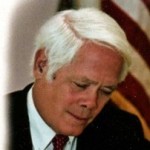
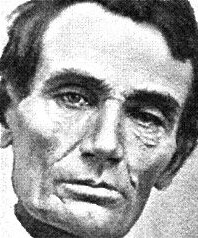
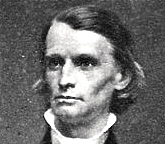
2 VIRGINIAS – THE COMET SPLITS THEM – APRIL, 17, 1861
ACT I – JEFFERSON VOTES UNIONISTS TO SECESSION CONVENTION
ACT II – CONVENTION UNIONISTS WITHSTAND VERBAL OFFENSIVE
ACT III – TWO ILL-TIMED VISITS TO LINCOLN
ACT IV – FIRST FLAME OF WAR
ACT V – THE WISE-IMBODEN COUP
ACT VI – THE MAY 23 REFERENDUM VOTE IS FOR SECESSION, BUT CLOUDED BY A COUP AND WAR
ACT VII – THE WILL IS FORGED FOR A “WEST” VIRGINIA
ACT I – JEFFERSON COUNTY VOTES 2 UNIONISTS TO SECESSION CONVENTION
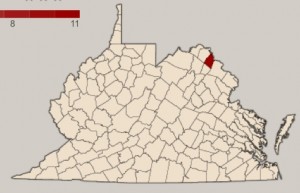
William Lucas, Logan Osburn, Andrew Hunter, Alfred Barbour

P. Douglas Perks writes:
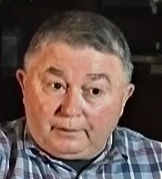
Soon Mississippi, then Florida and Alabama followed South Carolina out of the Union. But, the question on the collective mind of a now divided nation was, “How goes Virginia?”
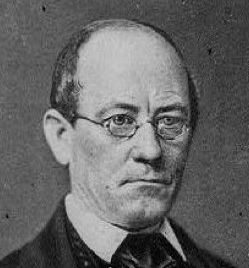
The answer to that question would soon be forthcoming. Governor John Letcher called for a special session of the Virginia General Assembly to be held on Monday, January 14th, 1861. The purpose of the session was to determine Virginia’s position on the issue of secession from the Union. The General Assembly decided that Virginia’s position would be determined at a state-wide convention to be held on Wednesday, February 13th, 1861. Each county would elect delegates to attend the convention. The convention was empowered to debate the issue of secession and make a proposal which then had to be ratified by a statewide referendum.
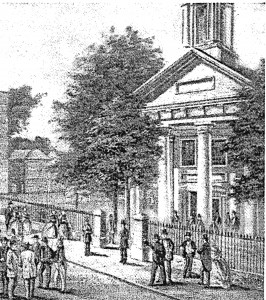
According to Millard Bushong, “the most important meeting ever held” in Jefferson County occurred on Monday, January 21st, 1861.10 On that date the same men who had just two months earlier cast their votes in the presidential election met at the Jefferson County Court House. They assembled at a public meeting to determine who would represent Jefferson County at the upcoming Virginia Secession Convention.
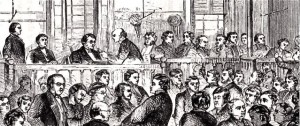
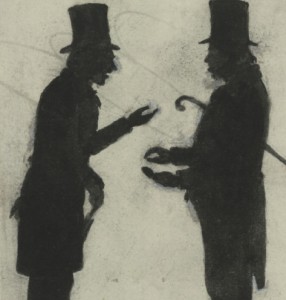
The results of the meeting were announced in the Alexandria Gazette:
The Southern Rights party in Jefferson Co., Va., has nominated the Hon. Wm. Lucas and Andrew Hunter, esq., as candidates for the State Convention. The Union party in the same county have nominated Col. A. M. Barbour and Logan Osborne, esq.
The men who supported States’ rights were represented by two men well known in Jefferson County.

William Lucas was a member of one of Jefferson’s oldest families. Born on November 30th, 1800 at Cold Spring just south of Shepherd’s Town, Lucas studied law under Henry Berry of Shepherd’s Town and Judge Henry St. George Tucker in Winchester. Lucas married Sarah Rion and in 1826 they inherited Rion Hall and oversaw its expansion. Upon Sarah’s death, Lucas married
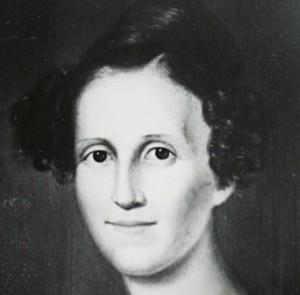
Virginia Bedinger, the daughter of Daniel Bedinger. They were the parents of
Judge Daniel Bedinger Lucas. Lucas practiced law first in Shepherd’s Town then in Charlestown. He was a delegate to the Virginia General Assembly in 1837-1838 and represented Virginia’s 15th Congressional District in 1839-1841. Lucas was a delegate from Jefferson County to the Virginia Constitution Convention held in 1850-1851.
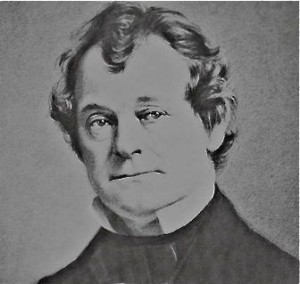
Lucas’ running mate was local attorney Andrew Hunter, well known in the county for his role in the prosecution of John Brown. Hunter was born March 22nd, 1804 in Berkeley County the son of Colonel David H. and Elizabeth Pendleton Hunter. Hunter graduated from Hampden-Sydney College and then studied law. In the 1850s, he built Hunter Hill on the east border of Charlestown. Hunter practiced first in Harper’s Ferry then in Charlestown. He was a Whig presidential elector in 1840, a member of the Virginia General Assembly in 1846, and the Virginia Constitution Convention in 1850-1851. Lucas and Hunter were running opposite two men who represented the Union Party.
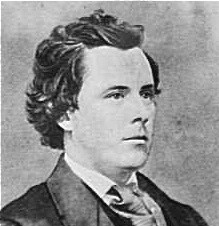
Alfred Madison Barbour was born April 17th, 1829 in Culpeper County, Virginia into one of Virginia’s oldest families. Barbour was a graduate of the University of Virginia and Harvard University School of Law. He began his practice of law in Charlestown. On December 24th, 1858 Barbour was appointed superintendent of the United States Armory at Harper’s Ferry. He was immediately faced with severe budget cuts, but Barbour handled the crisis well and earned good marks from his superiors at the Ordnance Department. In October 1859 at the time of John Brown’s attack on the armory, Barbour was in New England visiting the Springfield Armory and the Ames Manufacturing Company. He learned of the raid while visiting Samuel Colt in Hartford, Connecticut. He hurried home to Jefferson County and arrived back in Harper’s Ferry on October 21st. Archibald Kitzmiller, the acting superintendent, Master Armorer Benjamin Mills, and Master Machinist Armistead Ball had all had been held hostage by Brown and his men. Barbour was left with the task of restoring calm and order after the three day siege.
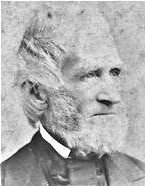
The other pro-Union candidate was Logan Osburn. Osburn was born March 23rd, 1810 in Loudoun County, Virginia. He received his education at the Catoctin Academy located in Loudoun County. In the 1830s after he married Hanna Leslie the Osburn’s moved to Ohio. There he pursued a number of vocations including newspaper editor and hotel operator. After the death of his wife, Osburn returned to Virginia where, in 1840, he married Margaret Chew Osburn. In 1843, the Osburn family moved to Jefferson County. Osburn bought the property in the Kabletown district known as Avon Bend. While the house was being renovated Osburn owned and operated a store in Kabletown. The Osburn family moved to Avon Bend in 1848. From 1851-1852 he co-owned Shannondale Springs. In 1856, Osburn built and moved his family to Avon View. Osburn represented Jefferson County in the Virginia General Assembly from 1857 to 1858.
PERKS CONTINUED:
Monday, February 4th, 1861 was the day designated by the Virginia General Assembly for each county to select its delegates to the Secession Convention. Jefferson’s electorate once again went to the polls. Consistent with the results of the presidential election, the men of Jefferson County voiced their support of the Constitution. Barbour and Osburn captured 1,433 votes and 1,350 votes respectively. Hunter’s 467 votes and Lucas’ total of 430 votes confirmed that in early February 1861 Jefferson County wanted to remain in the Union and would send two men to Richmond who would vote in opposition to secession.
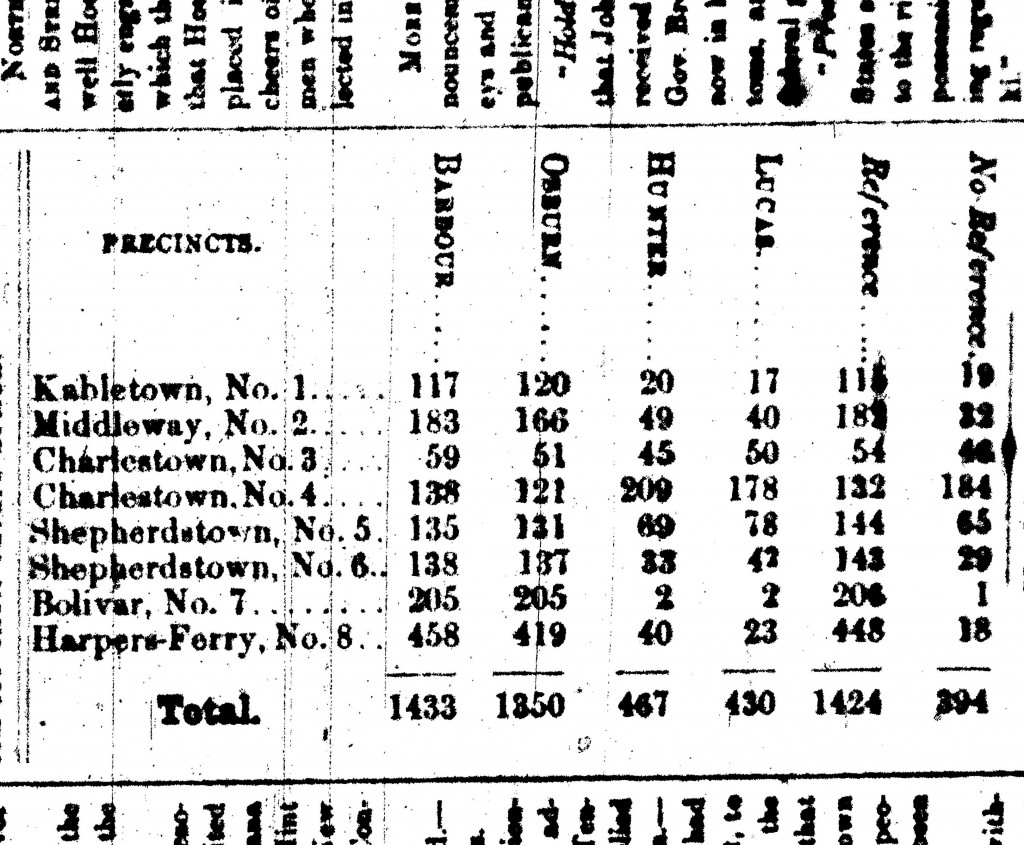
The three-month period from the first of February to the end of April in 1861 is arguably the most important 90 days in our Nation’s history. During those 2,160 hours, men from around the Commonwealth met to debate and to decide Virginia’s fate.
Among the document archives at the Jefferson County Museum is a collection of Logan Osburn’s correspondence. Included in the collection are several letters written by Osburn during this critical time in history. Reading Osburn’s observation of how events transpired during Virginia’s convention affords us a front row seat as history is being made. (Perks, pp. 74-77)
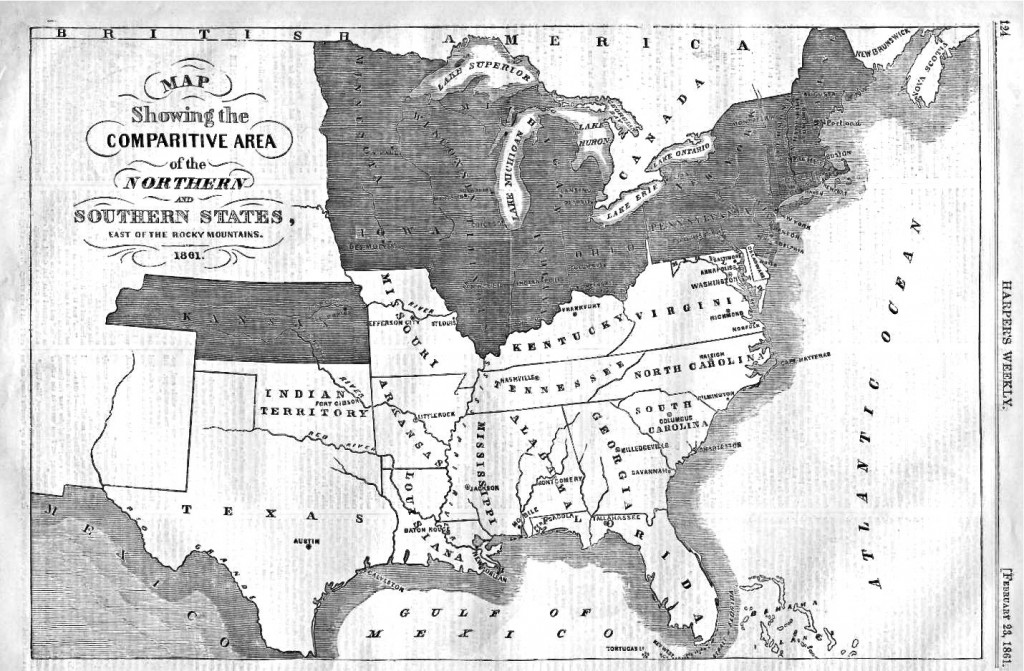
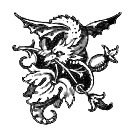
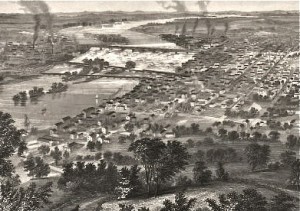
ACT II – UNIONISTS CONTROL THE CONVENTION, WILLEY AND CARLILE “ANSWER” POWERFUL SPEECHES BY INVITED SECESSION LOBBYISTS ANDERSON, BENNING AND PRESTON. MEANTIME, PRESIDENT-ELECT LINCOLN GIVES HINTS OF HIS POLICIES IN PUBLIC STATEMENTS. BUT AT THE CONVENTION ON APRIL 4TH, RIGHT AFTER A SWEEPING PRO-UNION VOTE REJECTING SECESSION, THE UNIONISTS OVERLOOK A GOLDEN MOMENT TO PREVENT SECESSION ALTOGETHER – AND FAIL TO PLAY THEIR ULTIMATE CARD – ADJOURNMENT SINE DIE.

Willey, Preston Smith, youth, Carlile, F. Anderson, Benning
February 13 – Wednesday, Richmond, VA: First Day of the Convention
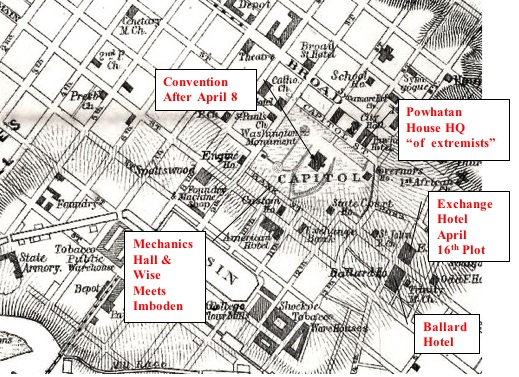
The Virginia Secession Convention opened on Wednesday, February 13th, 1861 in Richmond, Virginia. The Mechanics Institute at the foot of Capitol Square
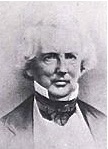
was selected to be the convention site. John Janney, delegate from Loudoun County, was elected president of the convention. Janney’s opening remarks set the tone for the convention:
It is our duty on an occasion like this to elevate ourselves into an atmosphere, in which party passion and prejudice cannot exist-to conduct all our deliberations with calmness and wisdom, and to maintain, with inflexible firmness, whatever position we may find it necessary to assume. (Perks, pp. 74-77)
The Virginia State Convention assembles in the Hall of the House of Delegates, and elects Mr. Cox as temporary Chairman. Mr. Gordon, Clerk of the House of Delegates, is appointed temporary Secretary.
The roll is called. Mr. Janney is elected President of the Convention, and makes a speech of acceptance. Mr. Eubank is elected Secretary. The Convention adopts for the time being the rules of the House of Delegates.

February 18 – Monday, Richmond, VA: Fifth Day of the Convention
Mr. Fulton Anderson, commissioner from Mississippi, addresses the Convention; he justifies the secession of his state, and invites Virginia to the leadership of a Southern Union. Mr. Benning, commissioner from Georgia, speaks in the same vein, with frequent reference to economic considerations. (NOTE: The comments regarding race by speakers Anderson, Benning, and Preston are presented with the understanding that they are considered unacceptable in a modern civilized society.-ED)
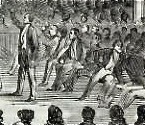
ACT II – SCENE I – LOBBYIST FROM MISSISSIPPI SECESSION COMMISSIONER FULTON ANDERSON SPEAKS: But we in Mississippi, gentlemen, are no longer under that illusion. Hope has died in our hearts. It received its death-knell at the fatal ballot-box in November last . . .

{THE COMMISSIONER FROM MISSISSIPPI
The President stated that in pursuance of the resolution of Friday last, he begged leave to announce to the Convention, that the Hon. FULTON ANDERSON, the Commissioner from Mississippi, would now address them:
Mr. ANDERSON ascended the platform near the President’s Chair, and addressed the Convention, as follows:
Mr. ANDERSON:
Gentlemen of the Convention: Honored by the Government of Mississippi with her commission to invite your co-operation in the measures she has been compelled to adopt for the vindication of her rights and her honor in the present perilous crisis of the country, I desire to express to you, in the name and behalf of her people, the sentiments of esteem and admiration which they in common with the whole Southern people entertain for the character and fame of this ancient and renowned Commonwealth.
. . . In recurring to our past history, we recognize the State of Virginia as the leader in the first great struggle for independence; foremost not only in the vindication of her own rights, but in the assertion and defence of the endangered liberties of her sister colonies; and by the eloquence of her orators and statesmen, as well as by the courage of her people arousing the whole American people in resistance to British aggression.
. . . I desire also to say to you gentlemen, that in being compelled to sever our connexion with the government which has hitherto united us, the hope which lies nearest to our hearts is that, at no distant day, we may be again joined with you in another Union, which shall spring into life under more favorable omens and with happier auspices than that which has passed away . . .
. . . On the 29th of November last, the Legislature of Mississippi, by an unanimous vote, called a Convention of her people, to take into consideration the existing relations between the Federal Government and herself, and to take such measures for the vindication of her sovereignty and the protection of her institutions as should appear to be demanded.
. . . As early as the 10th of February, 1860, her Legislature had, with the general approbation of her people, adopted the following resolution:
“Resolved, That the election of a President of the United States by the votes of one section of the Union only, on the ground that there exists an irrepressible conflict between the two sections in reference to their respective systems of labor and with an avowed purpose of hostility to the
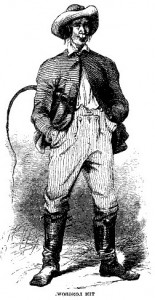
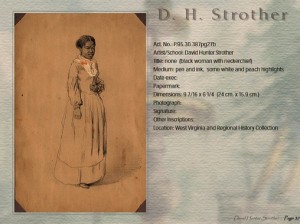
institution of slavery, as it prevails in the Southern States, and as recognized in the compact of Union, would so threaten a destruction of the ends for which the Constitution was formed, as to justify the slave-holding States in taking council together for their separate protection and safety.”
This was the ground taken, gentlemen, not only by Mississippi, but by other slave-holding States, in view of the then threatened purpose, of a party founded upon the idea of unrelenting and eternal hostility to the institution of slavery, to take possession of the power of the Government and use it to our destruction. It cannot, therefore, be pretended that the Northern people did not have ample warning of the disastrous and fatal consequences that would follow the success of that party in the election, and impartial history will emblazon it to future generations, that it was their folly, their recklessness and their ambition, not ours, which shattered into pieces this great confederated Government, and destroyed this great temple of constitutional liberty which their ancestors and ours erected, in the hope that their descendants might together worship beneath its roof as long as time should last.
But, in defiance of the warning thus given and of the evidences so cumulated from a thousand other sources, that the Southern people would never submit to the degradation implied in the result of such an election, that sectional party, bounded by a geographical line which excluded it from the possibility of obtaining a single electoral vote in the Southern States, avowing for its sentiment, implacable hatred to us, and for its policy the destruction of our institutions, and appealing to Northern prejudice, Northern passion, Northern ambition and Northern hatred of us, for success, thus practically disfranchizing the whole body of the Southern people, proceeded to the nomination of a candidate for the Presidency who, though not the most conspicuous personage in its ranks, was yet the truest representative of its destructive principles.
The steps by which it proposed to effect its purposes, the ultimate extinction of slavery, and the degradation of the Southern people, are too familiar to require more than a passing allusion from me.
. . . Having thus placed the institution of slavery, upon which rests not only the whole wealth of the Southern people, but their very social and political existence, under the condemnation of a government established for the common benefit, it proposed in the future, to encourage immigration into the public Territory, by giving the public land to immigrant settlers, so as, within a brief time, to bring into the Union free States enough to enable it to abolish slavery within the States themselves.
I have but stated generally the outline and the general programme of the party to which I allude without entering into particular details or endeavoring to specify the various forms of attack, which have been devised and suggested by the leaders of that party upon our institutions.
That this general statement of its purposes is a truthful one, no intelligent observer of events will for a moment deny; but the general view and purpose of the party has been sufficiently developed by the President elect.
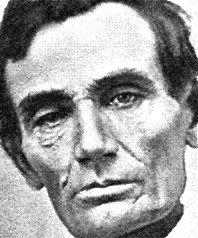
“It is my opinion,” says Mr. Lincoln, “that the slavery agitation will not cease until a crisis shall have been reached and passed. A house divided against itself cannot stand. I believe this government cannot endure permanently, half slave and half free. I do not expect the house to fall, but I expect it to cease to be divided. It will become all one thing or all another. Either the opponents of slavery will arrest its further spread and place it where the public mind shall rest in the belief that it is in the course of ultimate extinction, or its advocates will push it forward until it shall become alike lawful in all the States—old as well as new, North as well as South.”
. . . We, the descendants of the leaders of that illustrious race of men who achieved our independence and established our institutions, were to become a degraded and a subject class, under that government which our fathers created to secure the equality of all the States—to bend our necks to the yoke which a false fanaticism had prepared for them, and to hold our rights and our property at the sufferance of our foes, and to accept whatever they might choose to leave us as a free gift at the hands of an irresponsible power, and not as the measure of our constitutional rights.
All this, gentlemen, we were expected to submit to, under the fond illusion that at some future day, when our enemies had us in their power, they would relent in their hostility; that fanaticism would pause in its career without having accomplished its purpose; that the spirit of oppression would be exorcised, and, in the hour of its triumph, would drop its weapons from its hands, and cease to wound its victim. We were expected, in the language of your own inspired orator, to “indulge in the fond illusions of hope; to shut our eyes to the painful truth, and listen to the song of that syren until it transformed us into beasts.”
ANDERSON CONTINUED
But we in Mississippi, gentlemen, are no longer under that illusion. Hope has died in our hearts. It received its death-knell at the fatal ballot-box in November last, and the song of the syren no longer sounds in our ears. We have thought long and maturely upon this subject, and we have made up our minds as to the course we should adopt. We ask no compromise and we want none. We know that we should not get it if we were base enough to desire it, and we have made the irrevocable resolve to take our interests into our own keeping.
Could we think that the crisis which is now upon us was but a temporary ebullition of temper in one section of the country, which would in brief time subside, we might even yet believe that all was not lost, and that we might yet rest securely under the shadow of the Constitution. But the stern truth of history, if we accept its teachings, forbids us such reflections. It is not to be denied that the sentiment of hatred to our institutions in the Northern section of the Confederacy is the slow and mature growth of many years of false teaching, and that as we receded further and further from the earlier and purer days of the Republic, and from the memory of associated toils and perils in a common cause which once united us, that sentiment of hatred has been fanned from a small spark into a mighty conflagration, whose unextinguishable and devouring flames are reducing our empire into ashes.
ANDERSON CONTINUED
Ere yet that generation which achieved our liberty had passed entirely from the scene of action, it manifested itself in the Missouri controversy. Then were heard the first sounds of that fatal strife which has raged, with occasional intermissions, down to this hour. And so ominous was it of future disaster, even in its origin, that it filled even the sedate soul of Mr. Jefferson with alarm ; he did not hesitate to pronounce it, even then, as the death-knell of the Union, and in mournful and memorable words to congratulate himself that he should not survive to witness the calamities he predicted.
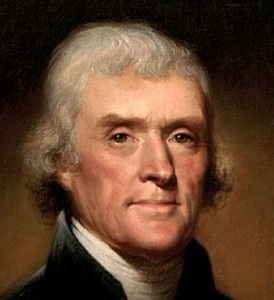
Said he :“This momentous question, like a fire-bell in the night, awakened and filled me with terror. I considered it at once as the knell of the Union. It is hushed, indeed, for the present, but that is only a reprieve, not a final sentence. A geographical line, coinciding with a marked principle, moral and political, once concurred in and held up to the passions of men, will never be obliterated, and every new irritation will mark it deeper and deeper, until it will kindle such mutual and mortal hatred as to render separation preferable to eternal discord. I regret that I am now to die in the belief that the useless sacrifice of themselves by the generation of 1776, to acquire self-government and happiness for their country, is to be thrown away by the unwise and unworthy passions of their sons, and that my only consolation is to be that I live not to weep over it.”
But, so far were the Northern people from being warned by these sad prophetic words, that at each renewal of the struggle the sentiment of hostility has acquired additional strength and intensity. . . An infidel fanaticism, crying out for a higher law than that of the Constitution and a holier Bible than that of the Christian, has been enlisted in the strife, and in every form in which the opinions of a people can be fixed and their sentiments perverted. In the schoolroom, the pulpit, on the rostrum, in the lecture-room and in the halls of legislation, hatred and contempt of us and our institutions, and of the Constitution which protects them, have been inculcated upon the present generation of Northern people. Above all, they have been taught to believe that we are a race inferior to them in morality and civilization, and that they are engaged in a holy crusade for our benefit in seeking the destruction of that institution which they consider the chief impediment to our advance, but which we, relying on sacred and profane history for our belief in its morality, believe lies at the very foundation of our social and political fabric and constitutes their surest support.
This, gentlemen, is indeed an irrepressible conflict which we cannot shrink from if we would; and though the President elect may congratulate himself that the crisis is at hand which he predicted, we, if we are true to ourselves, will make it fruitful of good by ending forever the fatal struggle and placing our institutions beyond the reach of further hostility.
ANDERSON CONTINUED
. . .This is the inevitable destiny of the Southern people, and this destiny Virginia holds in her hands. By uniting herself to her sisters of the South who are already in the field, she will make that a peaceful revolution which may otherwise be violent and bloody. At the sound of her trumpet in the ranks of the Southern States, “grim-visaged war will smooth his wrinkled front,” peace and prosperity will again smile upon the country, and we shall hear no more threats of coercion against sovereign States asserting their independence. The Southern people, under your lead, will again be united, and liberty, prosperity and power, in happy union, will take up their abode in the great Southern Republic, to which we may safely entrust our destinies. These are the noble gifts which Virginia can again confer on the country, by prompt and decided action at the present.
In conclusion, gentlemen, let me renew to you the invitation of my State and people, to unite and co-operate with your Southern sisters who are already in the field, in defence of their rights. We invite you to come out from the house of your enemies, and take a proud position in that of your friends and kindred. Come and be received as an elder brother whose counsels will guide our action and whose leadership we will willingly follow. Come and give us the aid of your advice in counsel and your arm in battle, and be assured that when you do come, as we know you will do at no distant day, the signal of your move will send a thrill of joy vibrating through every Southern heart, from the Rio Grande to the Atlantic, and a shout of joyous congratulation will go up which will shake the continent from its centre to its circumference.}
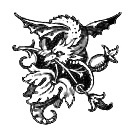
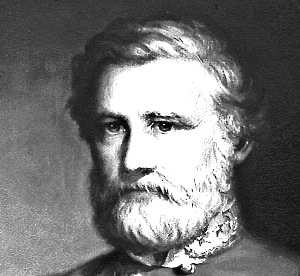
ACT II – SCENE II – GEORGIA’S HENRY L. BENNING ON THE NEED FOR SECESSION:
By the time the North shall have attained the power, the black race will be in a large majority, and then we will have black governors, black legislatures, black juries, black everything.
{The PRESIDENT—
In further execution of the order of the day, I have the honor of introducing to you the Hon. HENRY L. BENNING, of Georgia.
Mr. BENNING came forward and said:
Mr. President and Members of the Convention:
I have been appointed by the Convention of the State of Georgia, to present to this Convention, the ordinance of secession of Georgia, and further, to invite Virginia, through this Convention, to join Georgia and the other seceded States in the formation of a Southern Confederacy. This, sir, is the whole extent of my mission. I have no power to make promises, none to receive promises; no power to bind at all in any respect. But still, sir, it has seemed to me that a proper respect for this Convention requires that I should with some fulness and particularity, exhibit before the Convention the reasons which have induced Georgia to take that important step of secession, and then to lay before the Convention some facts and considerations in favor of the acceptance of the invitation by Virginia. With your permission then, sir, I will pursue this course.
What was the reason that induced Georgia to take the step of secession? This reason may be summed up in one single proposition. It was a conviction, a deep conviction on the part of Georgia, that a separation from the North was the only thing that could prevent the abolition of her slavery. This conviction, sir, was the main cause. It is true, sir, that the effect of this conviction was strengthened by a further conviction that such a separation would be the best remedy for the fugitive slave evil, and also the best, if not the only remedy, for the territorial evil. But, doubtless, if it had not been for the first conviction this step would never have been taken. It therefore becomes important to inquire whether this conviction was well founded.
Is it true, then, that unless there had been a separation from the North, slavery would be abolished in Georgia? I address myself to the proofs of that case.
In the first place, I say that the North hates slavery, and, in using that expression I speak wittingly. In saying that the Black Republican party of the North hates slavery, I speak intentionally. If there is a doubt upon that question in the mind of any one who listens to me, a few of the multitude of proofs which could fill this room, would, I think, be sufficient to satisfy him. I beg to refer to a few of the proofs that are so abundant; and ***the first that I shall adduce consists in two extracts
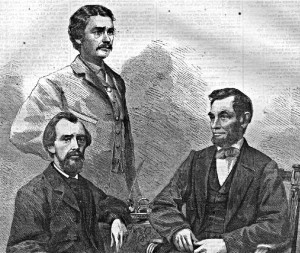
from a speech of Lincoln’s, made in October, 1858. They are as follows: “I have always hated slavery as much as any abolitionist; I have always been an old line Whig; I have always hated it and I always believed it in the course of ultimate extinction, and if I were in Congress and a vote should come up on the question, whether slavery should be excluded from the territory, in spite of the Dred Scott decision, I would vote that it should.”
These are pregnant statements; they avow a sentiment, a political principle of action, a sentiment of hatred to slavery as extreme as hatred can exist. *** The political principle here avowed is, that his action against slavery is not to be restrained by the Constitution of the United States, as interpreted by the Supreme Court of the United States. I say, if you can find any degree of hatred greater than that, I should like to see it. This is the sentiment of the chosen leader of the Black Republican party ; and can you doubt that it is not entertained by every solitary member of that same party? You cannot, I think. He is a representative man; his sentiments are the sentiments of his party; his principles of political action are the principles of political action of his party. I say, then; it is true, at least, that the Republican party of the North hates slavery.
My next proposition is, that the Republican party of the North is in a permanent majority. It is true that in a government organized like the government of the Northern States, and like our own government, a majority, where it is permanent, is equivalent to the whole. The minority is powerless if the majority be permanent. Now, is this majority of the Republican party permanent? I say it is. That party is so deeply seated at the North that you cannot overthrow it. It has the press, it has the pulpit, it has the school-house, it has the organizations—the Governors, Legislatures, the judiciary, county officers, magistrates, constables, mayors, in fact all official life. Now, it has the General Government in addition. It has that inexhaustible reserve to fall back upon and to recruit from, the universal feeling at the North that slavery is a moral, social and political evil. With this to fall back upon, recruiting is easy. This is not all. The Republican party is now in league with the tariff, in league with internal improvements, in league with three Pacific Railroads. Sir, you cannot overthrow such a party as that. As well might you attempt to lift a mountain out of its bed and throw it into the sea.
BENNING CONTINUED
But, suppose, sir, that by the aid of Providence and the intensest human exertion, you were enabled to overthrow it, how long would your victory last? But a very short time. The same ascendancy which that party has gained now, would be gained again before long. If it has come to this vast majority in the course of twenty-five years, from nothing, how long would it take the fragments of that party to get again into a majority? Sir, in two or three Presidential elections your labor would be worse than the labor of Sisyphus, and every time you rolled the rock up the hill it would roll back again growing larger and larger each time until at last it would roll back like an avalanche crushing you beneath it.
The Republican party is the permanent, dominant party at the North, and it is vain to think that you can put it down. It is true that the Republican party hates slavery, and that it is to be the permanent, dominant party at the North ; and the majority being equivalent to the whole, as I have already stated, we cannot doubt the result. What is the feeling of the rest of the Northern people upon this subject? Can you trust them? They all say that slavery is a moral, social and political evil. Then the result of that feeling must be hatred to the institution; and if that is not entertained, it must be the consequence of something artificial or temporary—some interest, some thirst for office, or some confidence in immediate advancement. And we know that these considerations cannot be depended upon, and we may expect that, ultimately, the whole North will pass from this inactive state of hatred into the active state which animates the Black Republican party.
Is it true that the North hates slavery? My next proposition is that in the past the North has invariably exerted against slavery, all the power which it had at the time. The question merely was what was the amount of power it had to exert against it. They abolished slavery in that magnificent empire which you presented to the North ; they abolished slavery in every Northern State, one after another ; they abolished slavery in all the territory above the line of 36 30, which comprised about one million square miles. They have endeavored to put the Wilmot Proviso upon all the other territories of the Union, and they succeeded in putting it upon the territories of Oregon and Washington. They have taken from slavery all the conquests of the Mexican war, and appropriated it all to anti-slavery purposes ; and if one of our fugitives escapes into the territories, they do all they can to make a free man of him; they maltreat his pursuers, and sometimes murder them. They make raids into your territory with a view to raise insurrection, with a view to destroy and murder indiscriminately all classes, ages and sexes, and when the base perpetrators are caught and brought to punishment, condign punishment, half the north go into mourning. If some of the perpetrators escape, they are shielded by the authorities of these Northern States—not by an irresponsible mob, but by the regularly organized authorities of the States.
My next proposition is, that we have a right to argue from the past to the future and to say, that if in the past the North has done this, in the future, if it shall acquire the power to abolish slavery, it will do it.
BENNING CONTINUED
My next proposition is that the North is in the course of acquiring this power to abolish slavery. Is that true? I say, gentlemen, the North is acquiring that power by two processes, one of which is operating with great rapidity—that is by the admission of new States. The public territory is capable of forming from twenty to thirty States of larger size than the average of the States now in the Union. The public territory is peculiarly Northern territory, and every State that comes into the Union will be a free State. We may rest assured, sir, that that is a fixed fact. The events in Kansas should satisfy every one of the truth of that. If causes now in operation are allowed to continue, the admission of new States will go on until a sufficient number shall have been secured to give the necessary preponderance to change the Constitution. There is a process going on by which some of our own slave States are becoming free States already. It is true, that in some of the slave States the slave population is actually on the decrease, and, I believe it is true of all of them that it is relatively to the white population on the decrease. The census shows that slaves are decreasing in Delaware and Maryland ; and it shows that in the other States in the same parallel, the relative state of the decrease and increase is against the slave population. It is not wonderful that this should be so. The anti-slavery feeling has got to be so great at the North that the owners of slave property in these States have a presentiment that it is a doomed institution, and the instincts of self-interest impels them to get rid of that property which is doomed. The consequence is, that it will go down lower and lower, until it all gets to the Cotton States—until it gets to the bottom. There is the weight of a continent upon it forcing it down. Now, I say, sir, that under this weight it is bound to go down unto the Cotton States, one of which I have the honor to represent here. When that time comes, sir, the free States in consequence of the manifest decrease, will urge the process with additional vigor, and I fear that the day is not distant when the Cotton States, as they are called, will be the only slave States. When that time comes, the time will have arrived when the North will have the power to amend the Constitution, and say that slavery shall be abolished, and if the master refuses to yield to this policy, he shall doubtless be hung for his disobedience.
My proposition, then, I insist, is true, that the North is acquiring this power. That being so, the only question is will she exercise it? Of course she will, for her whole course shows that she will. If things are allowed to go on as they are, it is certain that slavery is to be abolished except in Georgia and the other cotton States, and I doubt, ultimately in these States also. By the time the North shall have attained the power, the black race will be in a large majority, and then we will have black governors, black legislatures, black juries, black everything. (Laughter.) The majority according to the Northern idea, which will then be the all-pervading, all powerful one, have the right to control. It will be in keeping particularly with the principles of the abolitionists that the majority, no matter of what, shall rule. Is it to be supposed that the white race will stand that? It is not a supposable case. Although not half so numerous, we may readily assume that war will break out everywhere like hidden fire from the earth, and it is probable that the white race, being superior in every respect, may push the other back. They will then call upon the authorities at Washington, to aid them in putting down servile insurrection, and they will send a standing army down upon us, and the volunteers and Wide-Awakes will come in thousands, and we will be overpowered and our men will be compelled to wander like vagabonds all over the earth; and as for our women, the horrors of their state we cannot contemplate in imagination. That is the fate which Abolition will bring upon the white race.
But that is not all of the Abolition war. We will be completely exterminated, and the land will be left in the possession of the blacks, and then it will go back into a wilderness and become another Africa or St. Domingo. The North will then say that the Lord made this earth for his Saints and not for Heathens, and we are his Saints, and the Yankees will come down and drive out the negro.
Sir, this is Abolition to the cotton States. Would you blame us if we sought a remedy to avert that condition of things? What must be the requisites of any remedy that can do it? It must be one which will have one of two qualities. It must be something that will change the unanimity of the North on the slavery question, or something that shall take from them the power over the subject. Any thing that does not contain one of these two requisites is not a remedy for the case; it does not come to the root of the disease.
BENNING CONTINUED
What remedy is it that contains these requisites? Is there any in the Union that does? Let us take the strongest that we have heard suggested, which is an amendment of the Constitution guaranteeing the power of self-preservation, of dividing the public territory at the line of 36 deg. 30 min., giving the South all below that line. I know that remedy has not been thought of as in any degree practicable. But, let us look at it. Suppose they grant us the power of self-preservation—suppose they give to each Senator and member the veto power over any bill relating to slavery. That is putting it strong enough. Would that be sufficient now, to make it protective? I say it would not, and for two reasons. The first is that the North regards every such stipulation as void under the higher law. The North entertains the opinion that slavery is a sin and a crime. I mean, when I say the North, the Republican party, and that is the North ; and they say that any stipulation in the Constitution or laws in favor of slavery, is an agreement with death and a covenant with hell ; and that it is absolutely a religious merit to violate it. They think it as much a merit to violate a provision of that sort, as a mere stipulation in favor of murder or treason.
Well, sir, a people entertaining this opinion of a covenant of that sort, is beyond the pale of contract-making. You cannot make a contract with a people of that kind, because it is a bond not as they regard it, binding upon them. That being so, how will it be any protection to us, that our senators and representatives shall have the power of saying this bill shall not pass. Suppose the bill to pass giving protection to slavery, they would say hereafter, we proclaimed from the mountain tops, from the hustings, from the forum, and wherever our voice could be heard, that we did not regard stipulations in matters relating to slavery as binding upon us. We recognize a higher law, and will not obey these stipulations—you might have so expected from our proclaimed opinions beforehand.
The next reason is this, the North entertains upon the subject of the Constitution the idea that this a consolidated Government, that the people are one nation, not a Confederation of States, and that being a consolidated Government, the numerical majority is sovereign. The necessary result of that doctrine when pushed to its natural result is, that the Constitution of the United States is, at any time, subject to amendment by a bare majority of the whole people; and that being so, it becomes no matter what protection the Constitution may contain, it would be changed by a majority of the people, because a stipulation in the Constitution can no more be binding upon those who may choose subsequently to alter it, than the act of a legislature upon a subsequent legislature. Thus it is they will have the power to change the Constitution, alter it as you will. The President elect has proclaimed from the house tops in Indiana that a State is no more than a county. This is an abandonment in the concrete of the whole doctrine. How, then, can we accept any stipulation from a people holding the opinions that they do upon the question of slavery, and the obligations of government. The proposition which I have already adduced for argument sake, is infinitely beyond anything that we have a hope of obtaining. Then I assume that if this be true, it must be true that you can get no remedy for this disease in the Cotton States of the Union.
The question then is, would a separation from the North be a remedy? I say it would be a complete remedy; a remedy that would reach the disease in all its parts. If we were separated from the North, the will of the North on the subject of slavery would be changed. Why is it now that the North hates slavery? For the reason that they are, to some extent, responsible for the institution because of the Union, and for the reason that by hating slavery they get office. Let there be a separation, and this feeling will no longer exist, because slavery will no longer enter into the politics of the North. Does slavery in the South enter into the politics of England or France? Does slavery in Brazil or Cuba enter into the politics of the North? Not at all ; and if we were separated, the subject of slavery would not enter into the politics of the North. I say, therefore, that this remedy would be sufficient for this disease in the worst aspect of it. Once out of the Union, we would be beyond the influence of the yeas and nays of the North. Get us out, and we are safe.
BENNING CONTINUED
I think, then, that this conviction in the mind of Georgia—namely, that the only remedy for this evil is separation was well-founded. She also was convinced that separation would be the best, if not the only remedy for the fugitive slave evil and for the territorial evil. It may be asked, sir, if the personal liberty bills, if the election of Lincoln by a sectional majority, had nothing to do with the action of Georgia? Sir, they had much to do with it. These were most important facts. They indicated a deliberate purpose on the part of the North, in every case in which there was a stipulation in favor of slavery, to obliterate it if it had the power to do so. They are valuable in another respect. These personal liberty bills were unconstitutional; they were deliberate infractions of the Constitution of the United States; and being so, they give to us a right to say that we would no longer be bound by the Constitution of the United States, if we choose. The language of Webster, in his speech at Capon Springs, in your own State, was, that a bargain broken on one side, is broken on all sides. And in this opinion many others have coincided. And these Northern States having broken the Constitutional compact gives us cause to violate it also if we choose to do it. The election of Lincoln in itself is not a violation of the letter of the Constitution, though it violates it in spirit. The Constitution was formed with a view to ensure domestic peace and to establish justice among all, and this act of Lincoln’s election by a sectional majority, was calculated to disregard all these obligations, and inasmuch as the act utterly ignores our rights in the government, and in fact disfranchises us, we had a full right to take the steps that we have taken.
Now, I ask the question, Georgia feeling this conviction, what could she have done but to separate from this Union? Was she to stay and wait for Abolition? Sir, that was not to be expected of her? She did the only thing that could have been done to ensure her rights.
The second branch of my case is to lay before the Convention some facts to influence them, if possible, to accept the invitation of Georgia to join her in the formation of a Southern Confederacy.
What ought to influence a nation to enter into a treaty with another nation? It ought not be, I am free to say, any higher consideration than interest—material, social, political, religious interests. I am free to say that unless it could be made to appear that it was to her interest, she ought not to enter into it. And it shall be my endeavor now to show that it will be to the interest of Virginia materially, socially, politically and religiously, to accept the invitation of Georgia to join the Southern Confederacy—and, first, will it be to her material interests?
Georgia and the other cotton States produce four millions of bales of cotton, annually. Every one of these bales is worth $50. The whole crop, therefore, is worth $200,000,000. This crop goes on growing rapidly from year to year. The increase in the last decade was nearly 50 per cent. If the same increase should continue for the next decade we should have, in 1870, six million bales ; in 1890,This is the year cited in the Enquirer, although the speaker must have meant to say 1880. nine million of bales, and so on. And, supposing that this rate will not continue, yet we have a right to assume that the increase, in after years, will be very great, because consumption outruns production, and so long as that is the case, production will try to overtake it.
You perceive, then, that out of one article we have two hundred millions of dollars. This is surplus, and a prospect of an indefinite increase in the future. Then, we have sugar worth from fifteen to twenty millions of dollars, increasing every year at a pretty rapid rate. Then, we have rice, and naval stores, and plank, and live oak and various other articles which make a few more millions. You may set down that these States yield a surplus of $270,000,000 with a prospect of increase. These we turn into money and with that we buy manufactured goods. iron, cotton and woolen manufactures ready made and many other descriptions of goods necessary for consumption. Then we buy flour, and wheat, and bacon, and pork, and we buy mules and negroes ; very little of this money is consumed at home; we lay it out this way.
BENNING CONTINUED
Now I say, why will not Virginia furnish us these goods? Why will not she take the place now held by New England and New York, and furnish to the South these goods? Bear in mind that the manufactures consumed by the South are manufactures of the United States. They have now got the whole market by virtue of the tariff which we have laid on foreign importation. Will not Virginia take this place? I ask, is it not to the interest of Virginia and the border States to take this place? Most assuredly it is. Now I say it is at her own option whether she will take it or not. I dare say she can have the same sort of protection against the north that she has against Europe. That being so, and inasmuch as the same cause must produce the same effect, the same cause that built up manufactures at the north, will operate similarly in Virginia.
Then the question is, will you have protection necessary to accomplish this result? I say I think you will. I do not come here, as I said at the outset, to make promises; but I will give my opinion, and that is that the South will support itself by duties on imports. It has certainly begun to do that. We have merely adopted the revenue system of the United States so far, and are now collecting the revenue under an old law. Our Constitution has said that Congress should have the power to lay duties for revenue, to pay debts and to carry on the government, and therefore there is a limit to the extent that this protection can go, and within that the South can give protection that will be sufficient to enable you to compete with the North. We have got to have a navy, and an army, and we have got to make up that army speedily. It must be a much larger army than we have been accustomed to have in the late Union—it must be large in proportion to the army that it will have to meet. These things will require a revenue of about 10 per cent, which will yield an aggregate of about $20,000,000, and with this per cent, it would be in the power of Virginia to compete, in a short time, with all the nations of the earth in all the important branches of manufacture. Why? Because manufacturing has now been brought to such perfection by the invention of new machinery. The result will be the immigration of the best men of the North; skilled artizans and men of capital will come here and establish works among you. You have the advantage of longer days and shorter winters, and of being nearer to the raw material of a very important article of manufacture. I have no idea that the duties will be as low as 10 per cent. My own opinion is that we shall have as high duty as is now charged by the General Government at Washington. If that matter is regarded as important by this Convention, why the door is open for negotiation with us. We have but a provisional and temporary government so far. If it be found that Virginia requires more protection than this upon any particular article of manufacture let her come in the spirit of a sister, to our Congress and say, we want more protection upon this or that article, and she will, I have no doubt, receive it. She will be met in the most fraternal and complying spirit.
What is the state of the cotton trade? The North by virtue of their manufactures buy our cotton. They then take our cotton to Europe; they buy for it European manufactures; they take these manufactures and carry them to Boston, New York or Philadelphia, whence they distribute to us and all over the continent. But this all depends on the fact that they have manufactures to buy the cotton with. New York, Boston and Philadelphia, in fact, fatten upon the handling of cotton, and I ask why it is you do not avail yourselves of the advantages which these possess; why do you not take the place of New York, engage in manufactures, sell us your goods, take our cotton and send it to Europe for goods, and thus make this city the centre of the earth? I know that in the outset foreign imports would come direct to our ports, because you have not the manufactured goods to buy the cotton with, and we would have to send the cotton direct to Europe. But after a while you would have a monopoly of our trade having all the facilities to build up a manufacturing business extensive enough for the requirements of the whole country.
What would be the effect of this? Your villages would grow into towns, and your towns would grow into cities. Your mines would begin to be developed, and would throw their riches over the whole land ; and you would see those lands enhanced, which you have now to give away, almost, for nothing.
I say, then, it is in your power, by joining our Southern Confederacy, to become a great manufacturing empire. If you do not consider our organization as it is now made good enough, go down to Montgomery, and say, change this in such and such a form, and I venture to assert that they will meet you in the spirit in which you go. As things now stand, there is a great drain of wealth from the South to the North. The operation of the tariff, which at present averages about 20 per cent, is to enhance the prices of foreign goods upon us to that extent; and not only foreign goods, but domestic goods, as they will always preserve a strict ratio with the price charged for foreign imports. The South is thus heavily taxed. What the amount of tribute is which she pays to the North in this form, I have not accurately ascertained. It is difficult to find out how much tribute she pays in this form, but, from a rough estimate which I have made out myself, putting the amount of goods consumed by the South at $250,000,000 annually, though a Northern gentleman puts it at $300,000,000; but putting it at $250,000,000, the tribute which the South pays to the North annually, according to the present tariff [20 per cent] amounts to $50,000,000. Then there are the navigation laws which give the North a monopoly of the coasting trade. The consequence of this monopoly is that it raises freights, and to that extent enhances the price of goods upon us. There is the indirect carrying trade, in which they also have a monopoly. Instead of our goods coming to us direct, they now come by New York, Philadelphia or Boston. Last year the amount of goods that came to the South by this indirect route was about $72,000,000 which were not carried at a less cost than $5,000,000, which, of course, had to be paid by us. In the matter of expenditures we have not more than one fifth allotted to us, whereas we ought to have one-third. In 1860 the expenditures were $80,000,000, and the proportion of this which is lost to us by an unjust system of discrimination amounts to nearly $20,000,000. This is a perpetual drain upon us.
Mr. BENNING then referred to the drain in the matter of fugitive slaves, and proceeded to ask what would Virginia gain by joining the Southern Confederacy? What, said he, is the state of things now on the border? Is it such as to prevent the escape of slaves? It is not. There is a remedy for this. The state of things on the other side of the line should be such that slaves would not be induced voluntarily to run off, and if they did, that they would again soon gladly return. If you were with us, it would become necessary, in order to collect our revenue, to station police officers all along the border, and have there bodies of troops. It could be easily made part of the duty of these officers to keep strict watch along there and intercept every slave, and keep proper surveillance on all who may come within the line of particular localities. Is not that arrangement better than any fugitive slave law that you could get? Most assuredly it is. If we were separated from the North, the escape of a fugitive slave into their territory would be but the addition of one savage to the number they have already. (Laughter.)
Separate us from the North, and the North will be no attraction to the black man—no attraction to the slaves. It is not from a love for the black man that they receive him now; but it is from a hatred to slavery, and from a hatred to the owners of slaves.
Is not this a better remedy than anything that you can get out of Congress or in any form of legislation?
As regards the Territorial evil, I will show that the remedy for that too, is in separation. We want land, and have a right to it. How are we to get our share of it? Can we get it in the Union? Never. Put what you please in the Constitution, you never can get one foot of that land to which you have so just a claim. Why? Kansas tells the reason. The policy of the Black Republican party is to have this land settled up by those who do not own slaves. Their policy is the Homestead bill. You can enjoy all these things if you join us; and not only that, but you can enjoy them in peace. Cotton is peace. It is an article of indispensable necessity to the nations of the world, and they cannot obtain it without peace. Whenever there is war they cannot have it, and will therefore have peace. Join us, therefore, and you will have the advantage of enjoying all those,benefits in peace.
Suppose you join the North, what can they give you? Nothing. They will maintain, in the matter of manufactures, a competition that will destroy you. You cannot go into any market in the world and compete with them. They have the start of you, and you cannot catch up. How will it be with agricultural enterprise? Manufactures give the most active stimulant to agriculture, and when you cannot build up manufactures, you must suffer in your agricultural pursuits. Then there is the social and religious aspect of the question. Go with us, and the irrepressible conflict is at an end. We are the same in our social and religious attributes. We have a common Bible; we kneel at the same altar, break bread together, and there can be no difficulty between us on this score.
BENNING CONTINUED
Then there is the political question. Suppose you join us, and also the other border States, which they will, if you come in. We shall have a territory possessing an area of 850 or 900,000 square miles, with more advantages than any similar extent of territory on the face of the earth, lying as it is between the right parallels of latitude and longitude, having the right sort of coast facilities, and abounding in every production that can form the basis of prosperity and power.
Mr. BENNING referred to the probability of the Pacific States forming a distinct Confederacy after a separation shall once occur, and then discanted briefly on the general corruption which seems to exist at the North, where men make politics a profession, requiring property to be taxed for their support. He instanced the enormous burdens amounting to nearly $2,000,000 a year, to which the city of New York is subjected through the corrupting influences of politicians, and deduced from this state of things the decay and ultimate disintegration of the North after she shall have been cut off from the rest of the Union, and circumscribed with the narrow limits of her own unproductive inhospitable area.
If, said he, you join in the Southern Confederacy, you will become the leader of it as you are now. You will have the Presidency and Vice-Presidency and other advantages which it is unnecessary here to mention.
Join the North, and what will become of you? In that, I say, you will find yourself much lower than you stand now. No doubt the North will now make fine promises, but when you are once in, they will give you but little quarter. They will hate you and your institutions as much as they do now, and treat you accordingly. Suppose they elevated Sumner to the Presidency? Suppose they elevated Fred. Douglas, your escaped slave, to the Presidency? And there are hundreds of thousands at the North who would do this for the purpose of humiliating and insulting the South. What would be your position in such an event? I say give me pestilence and famine sooner that that.
As regards the African slave trade, we have done what we could to expel the illusion which is said to deter some timid persons from uniting with us. Our State has given her voice against it, and so has Alabama, and finally the Convention at Montgomery has placed the ban upon it by a Constitutional provision. Suppose we re-open the African slave trade, what would be the result? Why, we would be soon drowned in a black pool; we would be literally overwhelmed with a black population. If you open it, where are you going to stop? There is no barrier to it but that of interest, and that will never be a barrier until there will be more slaves than we want. But go down to Montgomery and we will stipulate with you, and satisfy you, I have no doubt, upon that, as upon all other questions. What danger is there in your going with this Confederacy? You will have, with the other border States, a population of eight millions, while we will have only five. What danger is there then with such a preponderance in your favor?
I heard another objection urged to your joining us, and that is, that we held out a threat in the way of a provision in our Constitution that Congress shall have power to stop the inter-State slave trade. I do not hesitate to say to you, that in my opinion, if you do not join us but join the North, that provision would be put in force. I think that these States would do all in their power to keep the border States slave States. It would be a mere instinct of self-preservation to do that, and I think that it would be done. But is this to be regarded as a threat held out to deter you from joining the North? You might as well say that a provision in respect to a tax is a threat against you.
After meeting the objection urged against the seceding States for seceding without consultation with the border States, with the argument of necessity, he closed with an expression of thanks to the Convention, and submitted the Ordinance of Secession passed by Georgia, which was read by the Clerk.} (Reese, George H. Proceedings of the Virginia State Convention of 1861, vol. 1. Print)}
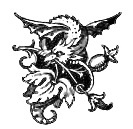
“Tomorrow is my address to the Convention I will make this (the “illusion of reconstruction”-ED) one of my main points – so will the Georgia and perhaps the Mississippi Commissioners . . . Virginia will not take sides until she is absolutely forced.” John S. Preston to (Francis W. Pickens), Feb. 17, 1861, John Smith Preston Papers, South Caroliniana Library, University of South Carolina, Columbia, SC. as cited in Dew, pp. 60-61)
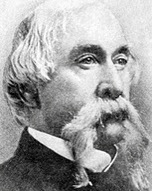
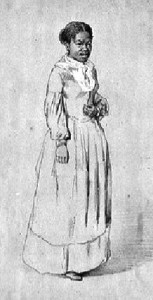
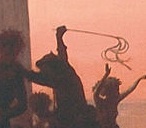
ACT II – SCENE III – JOHN SMITH PRESTON WINS HIS DAY: But when at last this mad fanaticism, this eager haste for rapine, mingling their foul purposes, engendered this fell spirit which has seized the Constitution itself in its most sacred forms and distorted it into an instrument of our instant ruin; why, then, to hesitate one moment longer seems to us not only base cowardice, but absolute fatuity.
February 19 – Tuesday, Richmond, VA: Sixth Day of the Convention
Mr. Preston, commissioner from South Carolina, addresses the Convention; he explains why his state exercised her right of secession, and urges the people of Virginia to join with South Carolina in protection of their common rights and interests.
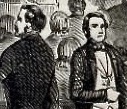
(NOTE: Mr. Preston is careful to describe the relationship between the Federal government and States as “a compact.”-ED).
{Mr. President and Gentlemen of Virginia:
I have had the honor to present you, sir, and this Convention my credentials, as Commissioner from the Government of South Carolina, and, upon your reception of these credentials, I am instructed by my Government to lay before you the causes which induced the State of South Carolina to withdraw from the Union, and the people of South Carolina to resume the powers which they had delegated to the Government of the United States of America.
It will be recollected by all that the British Colonies of North America, save by contiguity of territory, held no nearer political Union with each other than they did with the Colonies under the same Government at remote parts of the empire. They had a common Union, and a common sovereignty in the Crown of Great Britain. But when that Union was dissolved, each colony was remitted to its own ministry as perfectly as if it was separated from the other by the oceans of the empire. But being of joint territory, and having common interests, and having identical grievances against the mother country, the people of these colonies met together, consulted with each other at various times for a long series of years, and in various forms, but, as you may remember, most generally, in the form of a Congress of independent powers. They began their conflict with the mother Government each for itself, and the battles of Lexington, of Bunker Hill, of Fort Moultrie in the colony of South Carolina, and the battle of the Great Bridge in the colony of Virginia-all occurred before their common Declaration of Independence on the 4th of July, ’76. The Colonies, then in Congress, made a joint declaration of their freedom from Great Britain, of their independence and of their sovereignty.
. . . individually, they could not carry on this contest for independence and sovereignty, they united in certain articles which are known as the Articles of Confederation. In these articles there is the reiteration of the original declaration of the sovereignty and independence of the parts of it. All rights, all powers, all jurisdiction therein delegated produce no limitation upon the ultimate and discretionary sovereignty of the parts of it.
PRESTON CONTINUED
Four years later than this, it became apparent that their alliance was not sufficient for conducting the faculties of peace as it had been for conducting the faculties of war; and the remedies for this insufficiency resulted in that instrument known as the Constitution of the United States of America, and the amendments thereto proposed by the States individually.
Now, gentlemen of Virginia, we all know that in this instrument there is no one clause, no one phrase, no one word which places the slightest limitation, or indicates the slightest transmission of the sovereignty of the parties to that compact. On the contrary, the whole spirit and genius of that instrument goes to recognize itself as a mere agency for the performance of delegated functions, and to recognize the parts of it as the original holders of the sovereignty. In proof of this, the States at various times, under various forms, with a treaty reservation, consented to this compact. Now since that period, of course there has been no legitimated change of the relations of the parts under this compact.
. . . Then, are these questions of sufficient magnitude to require the interposition of sovereignty?
. . . Gentlemen, in these relations of the States to each other and to the Federal Government, the people of South Carolina have assumed that their sovereignty has never been divided; that it has never been alienated; that it is imprescriptibly in its entire; that it has not been impaired by their voluntarily refraining from the exercise of certain functions of sovereignty which they had delegated to another power, and upon this assumption, they contend that in the exercise of this unrestricted sovereignty, and upon the great principle of the right of a sovereign people to govern themselves, even if it involves the destruction of the compact which by its vitiation has become in imminent peril, that they have a right to abrogate their consent to that compact.
PRESTON CONTINUED
. . . As preliminary to this statement, I would say, that as early as the year 1820, the manifest tendency of the legislation of the general government was to restrict the territorial expansion of the slaveholding States. That is very evident in all the contests of that period;
. . . Besides this, I would state, as preliminary, that a large portion of the revenue of the government of the United States has always been drawn from duties on imports. Now, the products that have been necessary to purchase these imports, were at one time almost exclusively, and have always mainly been the result of slave labor, and therefore the burden of the revenue duties upon imports purchased by these exports must fall upon the producer who happens also to be the consumer of the imports.
In addition to this, it may be stated, that at a very early period of the existence of this Government, the Northern people, from a variety of causes, entered upon the industries of manufacture and of commerce, but of agriculture scarcely to the extent of self support.
. . . it was important that all the sources of the revenue should be kept up to meet the increasing expenses of the Government, it also manifestly became of great importance that these articles of manufacture in which they have been engaged should be subject to the purchase of their confederates. They, therefore, invented a system of duties partial and discriminating, by which the whole burden of the revenue from this extraordinary system fell upon those who produced the articles of exports which purchased the articles of imports, and which articles of import were consumed mainly, or to a great extent, by those who produced the exports.
Now, the State of South Carolina being at the time one of the largest exporters and consumers of imports, was so oppressed by the operations of this system upon her, that she was driven to the necessity of interposing her sovereign reservation to arrest it, so far as she was concerned.
. . . It could no longer be the avowed policy of the Government to tax one section for the purpose of building up another. But so successful had been the system; to such an extent had it already, in a few years, been pushed; so vast had been its accumulations of capital; so vastly had it been diffused throughout its ramifications as seemingly to inter-weave the very life of industry itself, in the two sections into each other in the form of mechanics, of manufactures, ships, merchants, and bankers. The people of the Northern States have so crawled and crept into every crevice of our industry which they could approach, and they have themselves so conformed to it, that we ourselves began to believe that they were absolutely necessary to its vitality; and they have so fed and fattened, and grown so great and large as they feed and fatten upon this sweating giant of the South, that with the insolence natural to sudden and bloated wealth and power, they begin to believe that the giant was created only as their tributary.
Now, strange as it may seem, it is nevertheless true, that while they were thus building up their wealth and their power from these sources, step by step, we will see latterly that, with this aggregation of wealth was growing up a determined purpose to destroy the very sources from which it was drawn. I pretend not ta explain this; I refer to it merely as history.
This, gentlemen, brings me directly to the causes which I desire to lay before you. For fully thirty years or more, the people of the Northern States have assailed the institution of African slavery. They have assailed African slavery in every form in which, by our contiguity of territory and our political alliance with them, they have been permitted to approach it.
PRESTON CONTINUED
Secondly, then, in pursuance of the same purpose that I have indicated, a large majority of the States of the Confederation have refused to carry out those provisions of the Constitution which are absolutely necessary to the existence of the slave States, and many of them have stringent laws to prevent the execution of those provisions; and eight of these States have made it criminal, even in their citizens to execute these provisions of the Constitution of the United States, which, by the progress of the government, have become now necessary to the protection of an industry which furnishes to the commerce of the Republic $250,000,000 per annum, and on which the very existence of twelve millions of people depends.
. . . Now, gentlemen, the people of South Carolina, being a portion of these eight millions of people, have only to ask themselves, is existence worth the struggle? Their answer to this question, I have submitted to you in the form of their Ordinance of Secession.
Gentlemen, I see before me men who have observed all the records of human life, and many, perhaps, who have been chief actors in many of its gravest scenes, and I ask such men if in all their lore of human society they can offer an example like this? South Carolina has 300,000 whites, and 400,000 slaves. These 300,000 whites depend for their whole system of civilization on these 400,000 slaves. Twenty millions of people, with one of the strongest Governments on the face of the earth, decree the extermination of these 400,000 slaves, and then ask, is honor, is interest, is liberty, is right, is justice, is life, worth the struggle?
. . . Now, gentlemen, for one moment look at the other side of the picture. For thirty years, by labor, by protest, by prayer, by warning, by every attribute, by every energy which she could bring to bear, my State has endeavored to avert this catastrophe. For this long series of years in the federal legislature what has been her course? What has been the labor which she has performed? What has been the purpose which she has avowed? Has she not given to this all her intelligence, all her patriotism, all her virtue-and that she had intelligence; that she had patriotism; that she had virtue is in proof, because that marble sits in the hall where the sovereignty of Virginia is consulting upon the rights and honor of Virginia. (Applause.) All this she did in the Federal Government. Failing in this more than a year ago, seeing the storm impending, seeing the waves rising, she sends to this great, this strong, this wise, this illustrious Republic of Virginia, a grave commission, the purport of which, with your permission, gentlemen, I will venture to relate.
PRESTON CONTINUED
“Whereas the State of South Carolina, by her ordinance of A. D. 1852, affirmed her right to secede from the Confederacy whenever the occasion should arise, justifying her, in her own judgment, in taking that step; and in the resolution adopted by her Convention, declared that she forbore the immediate exercise of that right, from considerations of expediency only:
And, whereas, more than seven years have elapsed since that Convention adjourned, and in the intervening time, the assaults upon the institution of slavery, and upon the rights and equality of the Southern States, have unceasingly continued with increasing violence, and in new and more alarming forms be it therefore,
- Resolved unanimously, That the State of South Carolina, still deferring to her Southern sisters, nevertheless respectfully announces to them, that it is the deliberate judgment of this General Assembly that the slaveholding States should immediately meet together to concert measures for united action.
- Resolved unanimously, That the foregoing preamble and resolution be communicated by the Governor to all the slaveholding States, with the earnest request of this State that they will appoint deputies, and adopt such measures as in their judgment will promote the said meeting.
- Resolved unanimously, That a special commissioner be appointed by his Excellency the Governor to communicate the foregoing preamble and resolutions to the State of Virginia, and to express to the authorities of that State the cordial sympathy of the people of South Carolina with the people of Virginia, and their earnest desire to unite with them in measures of common defence.”
This, gentlemen, was one year ago and no more. Failing in that effort, the people of South Carolina, for the first time in over 20 years, joined with the political organizations of the day, in the hopes-of deferring the catastrophe.
. . . After this simple act of excision still she has not been satisfied, and now still she is seeking aid, she is seeking counsel, she is seeking sympathy, and, therefore, gentlemen, I am before you here today. Now, gentlemen of Virginia, notwithstanding these facts which I have so feebly grouped before you, notwithstanding this patience which I have endeavored to show you she has practised, my State, throughout this whole land, throughout all Christendom, my State has been charged with rash precipitancy. Is it rash precipitancy to step out of the pathway when you hear the thunder crash of the falling clouds? Is it rash precipitancy to seek for shelter when you hear the gushing of the coming tempest, and see the storm cloud coming down upon you? Is it rash precipitancy to raise your hands to protect your head? (Loud applause.)
Gentlemen of Virginia, never since liberty came into the institutions of man have a people borne with more patience, or forborne with more fortitude than have the people of these Southern States in their relation with their confederates of the North. As long as it was a merely silly fanaticism or a prurient philanthropy that proposed our destruction, we scarcely complained. Even when a long series of unjust, partial and oppressive taxation was grinding us into the very dust of poverty, with one convulsive struggle we bore that happily. . . . And, in addition to this, when all that malignant fanaticism, that baffled avarice, that moral turpitude could invent to defame and vilify us, was proposed by the people and by the States of our confederates, still we gave them our blood and sweat and offered them our hands and called them brethren. I draw no fancy picture. I make no declamatory assertion here. There is not one man here who cannot cite twenty cases to fill every item of this category. But when at last this mad fanaticism, this eager haste for rapine, mingling their foul purposes, engendered this fell spirit which has seized the Constitution itself in its most sacred forms and distorted it into an instrument of our instant ruin; why, then, to hesitate one moment longer seems to us not only base cowardice, but absolute fatuity. (Applause.) We felt, in the South, that if we submitted one hour to such a domination as that, we would have merited that destruction which we had earned by our folly and baseness. Tn South Carolina at least, we felt, if there was one son of a South Carolina sire who could give counsel to such submission as this, that there was not a hill side or a plain from Eutaw to the Cowpens, from which the spirit of his venerated sire would not have started forth to shame him from the land which discarded him. (Applause.)
PRESTON CONTINUED
I pray you, gentlemen of Virginia, to pardon me for referring with some particularity to the position of my State in connection with these matters, because she has been much spoken of and not much praised. I am here, gentlemen, as the Commissioner of these people, certainly not their eulogist. I am sent here as I thought mainly because among them I have always, with some pride, proclaimed that I sprang from this soil, and because they believe that I would tell an honest, earnest story of their wrongs and their trials; and if you will permit me, I will still farther allude to it.* Never, gentlemen of Virginia, since liberty begun her struggles in the world, has a mightier drama been enacted on the trembling stage of man’s affairs or been opened with a spectacle of purer moral sublimity, than that which has been manifested in this revolution in which we are now engaged.*
. . . Gentlemen of Virginia, I believe that these Southern States are no noisy faction clamoring for place and power. They are no hungry rabble ready to answer back in blood to every appeal to their brutal passions. We are no shouting mob ready to take for our government some glittering epigram or some fustian and infidel theory. We are no festering fanatics. With us liberty is not a painted strumpet, drazzling through the streets, nor does our truth need to build itself in pools of blood. We are a calm, grave, deliberate and religious people, the holders of the most majestic civilization and the inheritors, by right, of the fairest estate of liberty. Fighting for that liberty, fighting for our fathers’ graves, standing athwart our hearth-stones and before our chamber doors, for days and weeks the people of our little State stood alone – that little State around whose outermost border the guns fired at her capital might almost be heard; whose little scope of sky was so small that scarce one star had space to glitter in it. So small, so few, we begun this fight alone against millions; and had you piled millions upon millions, under God, in this fight we should have triumphed. (Applause.) But that God, gentlemen, cares for his people – cares for liberty, and right, and justice-and we are no longer alone. Very soon our own children from Florida and Alabama answer back to the maternal call, and our great sister, Georgia, marshaled forth her giant offspring; and from the grave of the gallant Quitman, on the banks of the Mississippi, there came forth his well-known clarion tones, (applause); and Louisiana proved her paternity in the appeal of liberty; and now young Texas has raised her giant form and marches to the right of this majestic column of confederated sovereignties. (Applause.) Ah, gentlemen of Virginia, wherever outside of the borders of Virginia, the voice of a son of Virginia has spoken in this fight, it too has been known, because he spoke in the ancient tongue of his mother. (Applause.) 1, one of the humblest of her sons, told my countrymen, that before the spring grass grows long enough to weave one chaplet of victory, they will hear the sound as of the tramp of a mighty host of men, and they will see floating before that host the banner whose whole history is one blaze of glory, and not one blot of shame. (Applause.) Aye, they will hear coming up from that host one voice like their own, but it will be the resounding echo of that voice which has thundered into the hearts of your God-like sires-”give me liberty, or give me death!” (Applause.) And on that banner will be written the unsullied name of Virginia. (Applause.)
Gentlemen of Virginia, have I promised too much for our mother? To suggest a doubt, would be more than blasphemy. I believe she will come. I believe she will take her place which she has held for one hundred years – the foremost of all the world in the ranks of liberty and of justice. (Applause.) The world knows her history, and knows no history above it in the niche of fame-and, knowing that history, none dare doubt where Virginia will be when her own offspring, and liberty and justice, call her to the fight. (Applause.)
PRESTON CONTINUED
Now, we believe that these diversities pertain to every attribute pervading the whole of these two systems, and we therefore believe that this revolution, with this separation, with this disintegration, is not a mere accident; that it is not the mere casual result of a temporary cause; that it is not a mere evanescent bubble of popular error or irritation; that it is not a mere dream of philosophy, and that it is not the achievement of personal or individual ambition. We believe, gentlemen, that it has a far profounder cause than all this. We believe that it is not only a revolution of material necessity, but that it is a revolution resulting from the profoundest convictions, ideas, sentiments, and moral and intellectual necessities of earnest and intelligent men ***. . . . African slavery cannot exist at the North. The South cannot exist without African slavery. (Applause.) None but an equal race can labor at the North; none but a subject race will labor at the South.
Now, for these reasons and for others, perhaps, we believe that the political socialisms of these two systems, of these two sections, have assumed shapes so diverse, that their continuity of action is an absolute impossibility. ***
. . . I believe, gentlemen of Virginia, that the question which you now have to decide is whether you, the representatives of the sovereignty, the power, the glory, the hope of Virginia, will be content like a modern Egyptian to skulk for protection beneath the crumbling fragments of an ancient greatness, and under the scourge of a haughty but mean task-master, or whether you will step forth and hush this storm of war and keep the ancient glory of your name. (Applause.)
PRESTON CONTINUED
. . . the people of South Carolina contend that justice has required of them a resort to arms, in the protection of a principle of right. She has maintained this position, as I have indicated to you, a reasonable time. She has maintained it against falsehood and prejudice; she has maintained it until six sovereign States have come to her aid, and have formed a Government which the six have announced to the world by the eminent and patriotic citizen who has been put in charge of the Executive department of that Government.
. . . Now, gentlemen of Virginia, believing the interests involved and the rights violated to be identical with the interests and the rights of Virginia, and remembering their ancient motto and their common glory, the people of South Carolina have ordered me to ask and urge that the people of Virginia will unite with her and her confederates in the protection of those rights and those interests.
I have now performed this, my mission, and have only, in the name of my government, to return to this Convention my earnest acknowledgement of the honorable courtesy with which it has accepted my mission. On my own behalf, gentlemen, accept my sincere and honest thanks, I should say my deprecating thanks, for the kindness, courtesy and patience with which you have listened to the delivery of this mission. (Long and continued applause.)Reese, George H. Proceedings of the Virginia State Convention of 1861, vol. 1, pp. 76-93. Print}
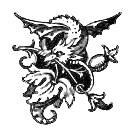
ACT II – SCENE IV – PRESIDENT-ELECT ABRAHAM LINCOLN TRAVELS EAST MAKING SPEECHES HINTING AT HIS INTENTIONS
(NOTE: Public comments by President-elected Lincoln were worded to not enflame prior to his inauguration, but, offer clues to his intentions.-ED)
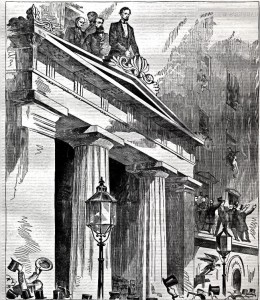
February 20 – Wednesday, New York City to Mayor Fernando Wood
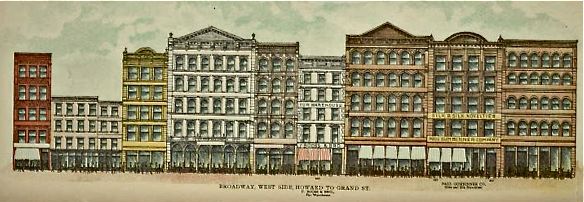
{Mr. MAYOR—It is with feelings of deep gratitude that I make my acknowledgment for this reception which has been given me in the great commercial city of New York. I cannot but remember that this is done by a people who do not by a majority agree with me in political sentiments. It is the more grateful [to me] because in this reception I see that, in regard to the great principles of our government, the people are very nearly or quite unanimous.
In reference to the difficulties that confront us at this time, and of which your Honor thought fit to speak so becomingly and so justly as I suppose, I can only say that I fully concur in the sentiments expressed by the Mayor. In my devotion to the Union I hope I am behind no man in the Union; but as to the wisdom with which to conduct affairs tending to the preservation of the Union, I fear that even too great confidence may have been reposed [placed] in me. I am sure I bring a heart devoted to the work.
There is nothing that can ever bring me willingly to consent to the destruction of this Union, under which not only the commercial city of New York, but the whole country has acquired its greatness, unless it were to be that thing for which the Union itself was made. I understand a ship to be made for the carrying and preservation of the cargo, and so long as the ship can be saved, with the cargo, it should never be abandoned. This Union should likewise never be abandoned unless it fails and the probability of its preservation shall cease to exist without throwing the passengers and cargo overboard. So long, then, as it is possible that the prosperity and the liberties of the people can be preserved in the Union, it shall be my purpose at all times to preserve it. Thanking you for the reception given me, allow me to come to a close. (Lincoln, Collected Works, Vol. IV, pp. 232-233).}
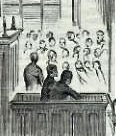
(NOTE: Lincoln often chose to place the greatest weight not on the Constitution, but the Declaration of Independence, especially its opening lines, viewing the Declaration as the set of aspirations and ultimate goals and the Constitution as the mutable document that was to be revised periodically to better attain the goals of the Declaration. In the following speech, for example, Lincoln makes reference only to the Declaration, not the Constitution. Similarly, the opening of The Gettysburg Address points to the Declaration which was created “four score and seven years” prior to the address.-ED)
February 22 – Thursday, Independence Hall, Philadelphia, PA:
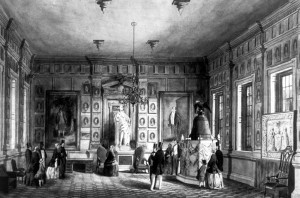
{Lincoln was welcomed by Theodore L. Cuyler, president of the Select Council of Philadelphia.
Mr. CUYLER:—I am filled with deep emotion at finding myself standing here in the place where were collected together the wisdom, the patriotism, the devotion to principle, from which sprang the institutions under which we live. You have kindly suggested to me that in my hands is the task of restoring peace to our distracted country.* I can say in return, sir, that all the political sentiments I entertain have been drawn, so far as I have been able to draw them, from the sentiments which originated, and were given to the world from this hall in which we stand. I have never had a feeling politically that did not spring from the sentiments embodied in the Declaration of Independence. (Great cheering.) I have often pondered over the dangers which were incurred by the men who assembled here and adopted that Declaration of Independence—I have pondered over the toils that were endured by the officers and soldiers of the army, who achieved that Independence. (Applause.) I have often inquired of myself, what great principle or idea it was that kept this Confederacy so long together. It was not the mere matter of the separation of the colonies from the mother land; but something in that Declaration giving liberty, not alone to the people of this country, but hope to the world for all future time. (Great applause.) It was that which gave promise that in due time the weights should be lifted from the shoulders of all men, and that all should have an equal chance. (Cheers.) This is the sentiment embodied in that Declaration of Independence.*
Now, my friends, can this country be saved upon that basis? If it can, I will consider myself one of the happiest men in the world if I can help to save it. If it can’t be saved upon that principle, it will be truly awful. But, if this country cannot be saved without giving up that principle—I was about to say I would rather be assassinated on this spot than to surrender it. (Applause.)
Now, in my view of the present aspect of affairs, there is no need of bloodshed and war. There is no necessity for it. I am not in favor of such a course, and I may say in advance, there will be no blood shed unless it be forced upon the Government. The Government will not use force unless force is used against it. (Prolonged applause and cries of “That’s the proper sentiment.”)
My friends, this is a wholly unprepared speech. I did not expect to be called upon to say a word when I came here—I supposed I was merely to do something towards raising a flag. I may, therefore, have said something indiscreet, (cries of “no, no”), but I have said nothing but what I am willing to live by, and, in the pleasure of Almighty God, die by.(Lincoln, Collected Works, Vol. IV, pp. 240-241).}
A later account of Lincoln’s speech at Independence Hall shows the larger context of a believed assassination threat to Lincoln.
Mr. Lincoln visited old Independence Hall, and with his own hand raised over it the flag. His speech on this occasion was the most impressive and characteristic of any which he made on his journey to the Capital. He gave most eloquent expression to the emotions and associations suggested by the day and place. He declared that all his political sentiments were drawn from those which had been expressed in that Hall. He alluded most feelingly to the dangers, and toils, and sufferings of those who had adopted and made good the Declaration of Independence: that declaration which gave promise that in due time the weight would be lifted from the shoulders of all men. Conscious of the dangers which threaten his country, and that those dangers originated in opposition to the principles of the Declaration of Independence, and knowing that his own life was even now threatened for his devotion to liberty, and that his way to the National Capital was beset by assassins, yet he did not hesitate to declare that he would rather be assassinated on the spot than surrender those principles.(Arnold, Harper’s New Monthly Magazine, (June, 1868), p. 127)

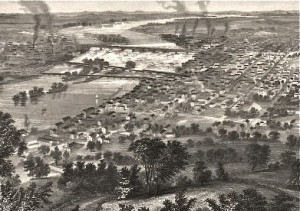
ACT II – SCENE V – WAITMAN T. WILLEY COUNTERS THE VISITORS’ SPEECHES, INVOKES GEORGE WASHINGTON AND THE VIRTUES OF WESTERN VIRGINIANS
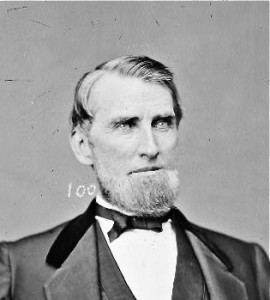
February 21 – Thursday, Richmond, VA: Eighth Day of the Convention
{Mr. WILLEY—
I will avail myself, Mr. President, of the indulgence of the Convention, for a very few moments, while I attempt to disabuse the minds of many members, as I have been given to understand, of a very serious misapprehension of the public sentiment of the Northwestern section of this State. For some cause unknown to me, intimations and insinuations prejudicial to the character of that section of country, for her loyalty to the institutions of Virginia, have been busily circulated among the members of the Convention. I was willing, for a while, to submit to a misapprehension which to some extent might be considered as natural, when it came alone from the Eastern borders of the State; but when I hear a member of this Convention, upon this floor, giving out intimations confirmatory of these suspicions, and going to credit the idea that there is want of loyalty in the Northwestern section of this State, to the institutions of Virginia, to all of our institutions, I cannot but violate the fixed resolution which I had formed in my mind when I came here, and ask the indulgence of this Convention for a few moments, while I disabuse any mind which has been poisoned by any such insinuations.
Sir, there exists not within the broad limits of this great State any people more loyal to its interests than the people of the North-western part of the State—any people readier to defend her rights to the death. I speak especially for my own constituency, and I verily believe that I represent the universal sentiment of trans-Alleghany. But this seems to be an age of distrust and suspicion. Guarantees are required on every hand, and it appears that Western gentlemen are asked for some guarantees for their fidelity to this glorious old Commonwealth. Why should these guarantees be asked? In what portion of our history can a single incident be pointed to that would subject us to the ban of your distrust? In what have we been derelict? In what have we been faithless? When did we not come up to the full demands of justice to the East on all questions? Never; but, sir, we have a record upon this subject — a record written in blood. I stand here representing the sons of sires who fell in your defence in the war of 1812. The cry of your distress and for help had scarcely echoed back from our western mountains and died along the Eastern shores of your coast, when the crack of the Western rifle was heard defending your firesides and your families defending that very property which you now make the object and subject of distrust of the Western heart. We have a glorious record. Your soil is consecrated with the memories of the loyalty of the West, because it contains the honored remains of some of her bravest and noblest sons. Why, sir, your honor is her honor; your interest is her interest; your country is her country; your faith shall be her faith; your destiny shall be her destiny.
But, sir, it seems that we love the Union too well. That seems to be the measure of our offence. If it be treason to love the Union, we learned that treason from you, sir — we learned it from your great men from your Jeffersons, from your Madisons, your Monroes, and from others of equally illustrious dead; and we have learned it from the living, little less distinguished men who are recognized as leaders at the present day, and who need but the consecration of death to place their names on the same roll of immortality.***Above all, we learned it from the
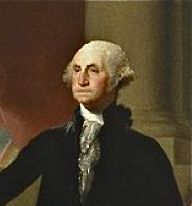
Father of his Country, the greatest of Virginia’s sons — the greatest man that ever stood upon the tide of time. As I passed down by his monument the other day, and gazed upon it with the reverence with which every American heart must contemplate his memory, I could almost imagine that I heard falling from his sacred lips the admonitions he gave us in his Farewell Address, bidding us beware of sectional dissensions, bidding us beware of geographical divisions, and instructing and conjuring us to regard the Union as the palladium of our liberties; to look with distrust upon any man that would teach us any-other doctrine.* . . . Mr. President, I may be asked, as I have often been asked, when I would consent to the dissolution of the Union?”— and I could almost imagine that I heard falling from his lips, “Never!” “Never!”*
And, sir, there lingers in the Western heart, especially of the Democratic constituency which I have the honor to represent, that sentiment uttered or written by Mr. Calhoun, in 1832, to General Hamilton, when he said : “The institution of the Union was so wisely ordered for the redress of grievances and for the correction of all evils, that he who would seek a remedy for this disease in dissolution would merit and receive the execration of this and all future generations.” That sentiment lingers there yet. You will forgive us if we cannot forget these great lessons of these great men in a moment. But I tell the distinguished gentleman from Princess Anne, [Mr. WISE], that while I do not understand altogether what he meant by fighting in the Union, the West, who still remembers him with gratitude for his services in the Convention of 1851, will rally to his support, or to the support of any other man in any fair contest, for the redress of any just grievances. When the last resort must come, when the proper appeal to the law and to the Constitution has failed to redress the grievances of the East, when her oppressions are intolerable, I tell you the Northwest will send you ten thousand men, with hearts as brave and arms as strong as ever bore the banner of freemen; and they will rally to her support, and seize by violence, if you see proper to call it so, or rescue by revolution, what we could not get by means of law. We are with the gentleman from Princess Anne in that regard. We do not stand upon nice distinctions. We do not always understand what is meant by the right of secession—we do not understand what is meant by the right of revolution; but when the proper cause arises, there are men in Western Virginia who will stand by the right to the last extremity.
I have been betrayed by the impulse of the moment to claim your attention much longer than I intended when I rose to address you; but, impelled by the kind indulgence of the Convention, I could not repress the desire to repel any insinuation against the loyalty of the citizens of Western Virginia, or to allow, on the other hand, any wrong impression to be made upon the minds of this Convention, that we are going to yield up our glorious Union for naught.}
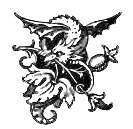
ACT II – SCENE VI – JEFFERSON COUNTY DELEGATE ALFRED BARBOUR’S REQUEST THE PREVIOUS JANUARY TO THE FEDERAL GOVERNMENT FOR REINFORCEMENTS AT THE HARPER’S FERRY ARMORY (WHERE HE WAS ALSO ITS SUPERINTENDENT) DRAWS SCRUTINY. A QUESTION BEFORE THE BODY HAD BEEN: “WITH FEDERAL FORTS CAPTURED BY THE SECEDING STATES, WHAT POSITION SHOULD VIRGINIA TAKE IN TERMS OF ANY FEDERAL INTENTION TO REINFORCE OR EVACUATE FEDERAL FORTS OR ARMORIES WITHIN VIRGINIA?” PRESIDENT-ELECT LINCOLN HAD BEEN CLEAR THAT HIS DUTIES INCLUDED OCCUPYING, POSSESSING, AND PROTECTING FEDERAL PROPERTY. BARBOUR APPEARS TO BE IN THE UNCOMFORTABLE POSITION OF HAVING TO SERVE “TWO MASTERS.”
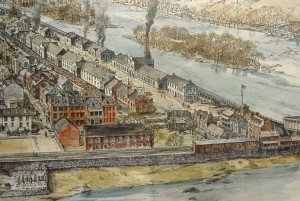
Feb. 23 – Saturday, Richmond, VA: Ninth Day of the Convention
Mr. Tredway explains his resolution on the reinforcement of Federal forts and arsenals in Virginia.
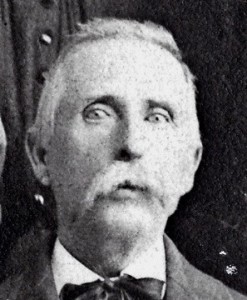
{Mr. TREDWAY—
I hope we have got through with personal explanations. I fear that we shall become as famous for personal explanations as we have been for the election of officers. I move now, sir, to take up the resolution offered by me on Wednesday last, and laid on the table at that time.
(The resolution was taken up. It reads as follows:)
Resolved, That a select committee of five be appointed with instructions to enquire and report as speedily as practicable, whether any movement of arms or men has been made by the General Government to any fort or arsenal in or bordering upon Virginia, indicating a preparation for attack or coercion.

Mr. A. M. BARBOUR—
I am sure, sir, that this body of Virginia gentlemen will recognize the delicacy of my position upon a question like this. But, sir, I want it known to all Virginia, that upon this floor, although occupying a Federal office, I represent the sovereign people of Virginia.
I must return my thanks to this Convention for the kindness they did me in my absence, to lay that resolution upon the table, and shall also express to them my regret that my absence prevented the appointment of the Committee, which the resolution proposed.
That resolution meets with my cordial approbation. I want all these facts brought out. Let the truth come instead of flying rumors and telegraphs in sensation papers from sensation people. When the time comes — when that Committee reports here, I pledge myself before the whole people of Virginia, that every soldier and every piece of ammunition sent to the armory at Harper’s Ferry sent there under my suggestions, from considerations of the highest obligations of duty — duty to the State of Virginia and duty to the Federal Government, will be made known; and, gentlemen, it will be to me, as a Virginian, a source of sincere consolation, if the sequel of that investigation does not become to the people of Virginia a subject of regret.
I have nothing more to say, except to repeat my thanks to those gentlemen who had this resolution laid upon the table in order to give me an opportunity to be heard.
(NOTE: The questioning from Mr. TREDWAY might have stemmed from the following exchange of telegrams and letters in January, 1861 initiated by Barbour, requesting reinforcements at the Harper’s Ferry Armory because of heard rumors of possible attack.-ED)
{Official Records, Series I, vol. LI, Part 1., pp. 308-309)
WASHINGTON, D.C., January 2, 1861.
Capt. WILLIAM MAYNADIER,
Ordnance Bureau:
SIR:
I have reason to apprehend that some assault will be made upon the U. S. Armory at Harper’s Ferry. My reasons I do not feel at liberty to disclose. They may or may not be well founded. I deem it my duty to inform you that there is no regularly organized defense for the post. The armorers have been formed into volunteer companies, and arms and ammunition furnished them. But they work in the armory during the day, and of course are not on duty at night. They would doubtless come to the protection of the armory when notified of the necessity. But the armory might be taken and destroyed; the arms might be abstracted and removed or destroyed; vast amount of damage might be done to the Government property before the companies could be notified or rallied. The watch force on duty at night numbers ten men, who are put there more to keep fires burning where necessary in certain shops and as general guards against fire, &c. Of course they are but little real protection against assault of a numerous force. They might all be taken without difficulty, though they are armed. I deem it my duty, therefore, as a public officer and as a citizen of Virginia, to express the belief that a company or more of regular U.S. soldiers should be placed there very soon. Willing and determined to discharge every duty devolved upon me in my relation to the Government as the superintendent of the armory, I cannot be held responsible for consequences at present, unless the Government itself sees to the protection of its property by placing reliable, regularly drilled forces to sustain me. I do not look to personal consequences at all. I look to the duty of protecting the property of the Federal Government now under my charge. I have taken every precaution which could be taken with the means at my command. I shall cheerfully abide by any order or decision made by the Department.
Your obedient servant,
ALFRED M. BARBOUR,
Superintendent U. S. Armory, Harper’s Ferry, Va.
ADJUTANT-GENERAL’S OFFICE,
Washington, January 3, 1861.
Maj. L. P. GRAHAM,
Second Dragoons, Supt. Mounted Recruiting Service,
Carlisle Barracks, Pa.:
SIR:
The Secretary of War directs that you send sixty men, composed of the permanent party, and some picked men of the best drilled recruits, with the complement of non-commissioned officers for a company to Harper’s Ferry Armory without delay, under charge of First Lieut. Roger Jones, Mounted Rifles. The company will be reported to Bvt. Maj. Henry J. Hunt, Second Artillery, at Harper’s Ferry, who will receive orders concerning it. The company will take no arms or accouterments, but as it may remain at the armory some time, the men should go provided with the necessary clothing. Of course horses will not be required.
I am, sir, very respectfully, your obedient servant,
S. COOPER,
Adjutant-General.}
{Mr. BORST—
. . . Let me here say to this Convention, whose members are, no doubt, familiar with the Trojan war, that the Old Dominion may find herself in the attitude in which ancient Troy was placed by the wooden horse of the Greeks. May not these fortifications prove to Virginia, by and by, what the wooden horse proved to Troy? It is well that our people should take warning by these suspicious movements of the Federal Government. I will say for my people that they are utterly opposed to coercion; that they are opposed at this time to any reinforcement of the forts or arsenals by the Federal Government; and I believe it is the sentiment of Virginia, that if the Federal Government shall fill its wooden horses within her limits with arms and munitions of war for the ultimate destruction of her people, that the voice of this Convention should be heard issuing orders to seize the wooden monster and hurl it from the State. . . . With these remarks I will express a hope that the Convention will adopt this resolution, that we may ascertain the true condition of the country. If we are to be menaced; if we are to be coerced; if the General Government contemplates a policy of subjugation, I hope and trust the fact will be made known.
Mr. A. M. BARBOUR
I have no disposition to have myself paraded in the local papers in connection with this or any other matter. I do not intend to discuss the question of Union, but I mean to say, that if Virginia gentlemen, who are in favor of going out of the Union, are afraid of fifty blue-coated men, they had better stay in. We shall find that the result of this conflict will be, that the men who go out last will be the first to fight for you. I desire to say, that I want Virginia to stay in the Union, if she can do so upon terms of honor; and if not, I want her to go out and appeal to the God of battles. I do say this, also, as a Virginian, that if you get me out, I will cut this head off before I come back. I am not in favor of dodging old Virginia out of the Union one day, to get her in another. I want to stay in the Union upon terms that are satisfactory to all our people, and when we cannot stay in upon such terms, to go out; and if you go out, then there is no power on the face of this earth that can bring back the brave and noble people of the Commonwealth of Virginia.
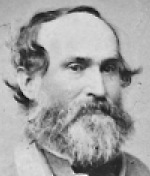
Mr. EARLY—
I am sorry to detain the Convention for one moment, but I feel bound to make a remark or two with regard to this resolution. I think we can all understand the motives that actuated the gentleman from Jefferson, (Mr. A. M. BARBOUR) in the call that he made. A Virginia gentleman and a Federal officer, in charge of an arsenal belonging to the United States, when lawless designs were initiated in some of the States, was put in a position that required for the protection of his honor that he should not be charged with colluding at any unlawful attempt upon the arsenal in his charge. I think there can be no misapprehension as to the motives which actuated him.
Mr. JAMES BARBOUR—
I shall, in very few words, make a statement on a subject involving very great delicacy. But as a matter of justice to the Superintendent at Harper’s Ferry, since this matter is going out to the public, I feel it to be my duty to make a statement of a fact.
I happened to be in the city of Washington at the time that the superintendent made the communication to the Executive, which resulted in this movement. It was made, sir, upon information communicated to me, with a desire to have that information communicated to him by a Virginia member of Congress, a personal friend of mine, and as warm and bitter a secessionist as is to be found within the limits of the Commonwealth. After getting possession of this information, I consulted some gentlemen of clear heads and sound hearts, and told the Superintendent there that as a Virginian, in view of the facts that I communicated to him upon the high authority upon which I did communicate them, that it was his business to communicate them to the Executive, and to demand aid, which he did, and I told him if censure came upon him that I would bear part of it. I say that the steps which he took were the steps which every Virginian, knowing the facts that he knew, would have taken.
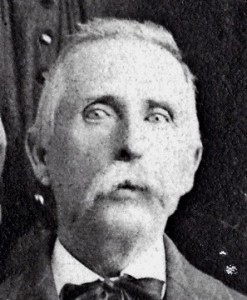
Mr. TREDWAY—
In offering this resolution, sir, I will state that I had entirely forgotten at the time that the gentleman from Jefferson (A. M. BARBOUR) was at all connected with the arsenal at Harper’s Ferry. It was certainly not dictated by any want of confidence in his fidelity to the State of Virginia, although he occupied the position of an officer connected with that arsenal. I am satisfied, sir, that the effect of this resolution will be to place him, where I never doubted he would be placed, in the position of a true, loyal Virginian.
Mr. A. M. BARBOUR—
Although the resolution of the gentleman from Pittsylvania (Mr. TREDWAY) in no way contemplated any action of mine, yet, because this debate has taken this range, I feel that it is due to this body, as Virginia gentlemen, due to myself and due to the gentleman who moved the inquiry, that the Convention should refuse to lay the resolution on the table. About the other forts in the Commonwealth, I know nothing and care nothing.
The force sent to Harper’s Ferry was sent at my suggestion, and that takes from the Federal Executive the only poison here, that of intent. I have in no way deemed it due to myself even to consider that resolution in view of any vindication of myself, but because when these soldiers went there two or three weeks ago, there were misapprehensions aroused all over the State. I did not rise here to vindicate myself, but to put the facts before the country, and make a statement which I believe to be due both to the government and to myself. It was with this view that I requested the Convention to refuse to lay the resolution on the table.
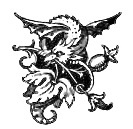
March 4 – Monday, Washington, D.C.: LINCOLN INAUGURATED
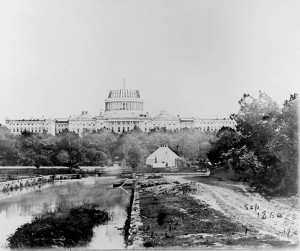
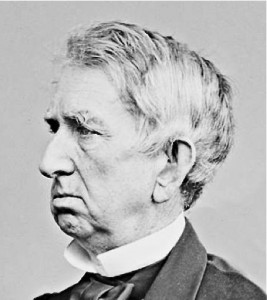
(NOTE: Lincoln’s Inaugural Address, was helped at the draft stage by William Seward. Seward dissuaded Lincoln from his original written conclusion as alienating to Virginia and other un-seceded, slave states: With you, and not me, is the solemn question of: ‘Shall it be peace, or a sword?’- ED.; Doris K. Goodwin, p. 326)
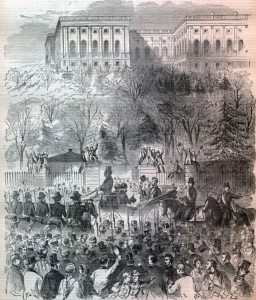
{LINCOLN’s INAUGURAL ADDRESS
Fellow-citizens of the United States:
In compliance with a custom as old as the government itself, I appear before you to address you briefly, and to take, in your presence, the oath prescribed by the Constitution of the United States, to be taken by the President “before he enters on the execution of this office.”
I do not consider it necessary at present for me to discuss those matters of administration about which there is no special anxiety or excitement.
Apprehension seems to exist among the people of the Southern States, that by the accession of a Republican Administration, their property, and their peace, and personal security, are to be endangered. There has never been any reasonable cause for such apprehension. Indeed, the most ample evidence to the contrary has all the while existed, and been open to their inspection. It is found in nearly all the published speeches of him who now addresses you. I do but quote from one of those speeches when I declare that “I have no purpose, directly or indirectly, to interfere with the institution of slavery in the States where it exists. I believe I have no lawful right to do so, and I have no inclination to do so.” Those who nominated and elected me did so with full knowledge that I had made this, and many similar declarations, and had never recanted them. And more than this, they placed in the platform, for my acceptance, and as a law to themselves, and to me, the clear and emphatic resolution which I now read:
Resolved, That the maintenance inviolate of the rights of the States, and especially the right of each State to order and control its own domestic institutions according to its own judgment exclusively, is essential to that balance of power on which the perfection and endurance of our political fabric depend; and we denounce the lawless invasion by armed force of the soil of any State or Territory, no matter what pretext, as among the gravest of crimes.”
I now reiterate these sentiments; and in doing so, I only press upon the public attention the most conclusive evidence of which the case is susceptible, that the property, peace and security of no section are to be in any wise endangered by the now incoming Administration. I add too, that all the protection which, consistently with the Constitution and the laws, can be given, will be cheerfully given to all the States when lawfully demanded, for whatever cause – as cheerfully to one section as to another.
There is much controversy about the delivering up of fugitives from service or labor. The clause I now read is as plainly written in the Constitution as any other of its provisions:
“No person held to service or labor in one State, under the laws thereof, escaping into another, shall, in consequence of any law or regulation therein, be discharged from such service or labor, but shall be delivered up on claim of the party to whom such service or labor may be due.”
LINCOLN CONTINUED
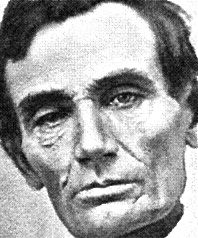
It is scarcely questioned that this provision was intended by those who made it, for the reclaiming of what we call fugitive slaves; and the intention of the law-giver is the law. All members of Congress swear their support to the whole Constitution – to this provision as much as to any other. To the proposition, then, that slaves whose cases come within the terms of this clause, “shall be delivered,” their oaths are unanimous. Now, if they would make the effort in good temper, could they not, with nearly equal unanimity, frame and pass a law, by means of which to keep good that unanimous oath?
There is some difference of opinion whether this clause should be enforced by national or by state authority; but surely that difference is not a very material one. If the slave is to be surrendered, it can be of but little consequence to him, or to others, by which authority it is done. And should any one, in any case, be content that his oath shall go unkept, on a merely unsubstantial controversy as to how it shall be kept?
Again, in any law upon this subject, ought not all the safeguards of liberty known in civilized and humane jurisprudence to be introduced, so that a free man be not, in any case, surrendered as a slave? And might it not be well, at the same time to provide by law for the enforcement of that clause in the Constitution which guarantees that “the citizens of each State shall be entitled to all privileges and immunities of citizens in the several States”?
I take the official oath to-day, with no mental reservations, and with no purpose to construe the Constitution or laws, by any hypercritical rules. And while I do not choose now to specify particular acts of Congress as proper to be enforced, I do suggest that it will be much safer for all, both in official and private stations, to conform to, and abide by, all those acts which stand unrepealed, than to violate any of them, trusting to find impunity in having them held to be unconstitutional.
It is seventy-two years since the first inauguration of a President under our national Constitution. During that period fifteen different and greatly distinguished citizens, have, in succession, administered the executive branch of the government. They have conducted it through many perils; and, generally, with great success. Yet, with all this scope for [of] precedent, I now enter upon the same task for the brief constitutional term of four years, under great and peculiar difficulty. A disruption of the Federal Union, heretofore only menaced, is now formidably attempted.
I hold, that in contemplation of universal law, and of the Constitution, the Union of these States is perpetual. Perpetuity is implied, if not expressed, in the fundamental law of all national governments. It is safe to assert that no government proper, ever had a provision in its organic law for its own termination. Continue to execute all the express provisions of our national Constitution, and the Union will endure forever – it being impossible to destroy it, except by some action not provided for in the instrument itself.
Again, if the United States be not a government proper, but an association of States in the nature of contract merely, can it, as a contract, be peaceably unmade, by less than all the parties who made it? One party to a contract may violate it — break it, so to speak; but does it not require all to lawfully rescind it?
Descending from these general principles, we find the proposition that, in legal contemplation, the Union is perpetual, confirmed by the history of the Union itself. The Union is much older than the Constitution. It was formed in fact, by the Articles of Association in 1774. It was matured and continued by the Declaration of Independence in 1776. It was further matured and the faith of all the then thirteen States expressly plighted and engaged that it should be perpetual, by the Articles of Confederation in 1778. And finally, in 1787, one of the declared objects for ordaining and establishing the Constitution, was “to form a more perfect Union.” But if [the] destruction of the Union, by one, or by a part only, of the States, be lawfully possible, the Union is less perfect than before the Constitution, having lost the vital element of perpetuity.
It follows from these views that no State, upon its own mere motion, can lawfully get out of the Union, – that resolves and ordinances to that effect are legally void, and that acts of violence, within any State or States, against the authority of the United States, are insurrectionary or revolutionary, according to circumstances.
I therefore consider that in view of the Constitution and the laws, the Union is unbroken; and to the extent of my ability I shall take care, as the Constitution itself expressly enjoins upon me, that the laws of the Union be faithfully executed in all the States. Doing this I deem to be only a simple duty on my part; and I shall perform it, so far as practicable, unless my rightful masters, the American people, shall withhold the requisite means, or in some authoritative manner, direct the contrary. I trust this will not be regarded as a menace, but only as the declared purpose of the Union that will constitutionally defend and maintain itself.
LINCOLN CONTINUED
In doing this there needs to be no bloodshed or violence; and there shall be none, unless it be forced upon the national authority. The power confided to me will be used to hold, occupy, and possess the property and places belonging to the government, and to collect the duties and imposts; but beyond what may be necessary for these objects, there will be no invasion – no using of force against or among the people anywhere. Where hostility to the United States in any interior locality, shall be so great and so universal, as to prevent competent resident citizens from holding the Federal offices, there will be no attempt to force obnoxious strangers among the people for that object. While the strict legal right may exist in the government to enforce the exercise of these offices, the attempt to do so would be so irritating, and so nearly impracticable with all, that I deem it better to forego, for the time, the uses of such offices.
The mails, unless repelled, will continue to be furnished in all parts of the Union. So far as possible, the people everywhere shall have that sense of perfect security which is most favorable to calm thought and reflection. The course here indicated will be followed, unless current events and experience shall show a modification or change to be proper; and in every case and exigency my best discretion will be exercised according to circumstances actually existing, and with a view and a hope of a peaceful solution of the national troubles, and the restoration of fraternal sympathies and affections.
That there are persons in one section or another who seek to destroy the Union at all events, and are glad of any pretext to do it, I will neither affirm nor deny; but if there be such, I need address no word to them. To those, however, who really love the Union may I not speak?
Before entering upon so grave a matter as the destruction of our national fabric, with all its benefits, its memories, and its hopes, would it not be wise to ascertain precisely why we do it? Will you hazard so desperate a step, while there is any possibility that any portion of the ills you fly from have no real existence? Will you, while the certain ills you fly to, are greater than all the real ones you fly from? Will you risk the commission of so fearful a mistake?
All profess to be content in the Union, if all constitutional rights can be maintained. Is it true, then, that any right, plainly written in the Constitution, has been denied? I think not. Happily the human mind is so constituted, that no party can reach to the audacity of doing this. Think, if you can, of a single instance in which a plainly written provision of the Constitution has ever been denied. If by the mere force of numbers, a majority should deprive a minority of any clearly written constitutional right, it might, in a moral point of view, justify revolution — certainly would, if such right were a vital one. But such is not our case. All the vital rights of minorities, and of individuals, are so plainly assured to them, by affirmations and negations, guaranties and prohibitions, in the Constitution, that controversies never arise concerning them. But no organic law can ever be framed with a provision specifically applicable to every question which may occur in practical administration. No foresight can anticipate, nor any document of reasonable length contain express provisions for all possible questions. Shall fugitives from labor be surrendered by national or by State authority? The Constitution does not expressly say. May Congress prohibit slavery in the territories? The Constitution does not expressly say. Must Congress protect slavery in the territories? The Constitution does not expressly say.
From questions of this class spring all our constitutional controversies, and we divide upon them into majorities and minorities. If the minority will not acquiesce, the majority must, or the government must cease. There is no other alternative; for continuing the government, is acquiescence on one side or the other. If a minority, in such case, will secede rather than acquiesce, they make a precedent which, in turn, will divide and ruin them; for a minority of their own will secede from them whenever a majority refuses to be controlled by such minority. For instance, why may not any portion of a new confederacy, a year or two hence, arbitrarily secede again, precisely as portions of the present Union now claim to secede from it? All who cherish disunion sentiments, are now being educated to the exact temper of doing this.
Is there such perfect identity of interests among the States to compose a new Union, as to produce harmony only, and prevent renewed secession?
Plainly, the central idea of secession, is the essence of anarchy. A majority, held in restraint by constitutional checks and limitations, and always changing easily with deliberate changes of popular opinions and sentiments, is the only true sovereign of a free people. Whoever rejects it, does, of necessity, fly to anarchy or to despotism. Unanimity is impossible; the rule of a minority, as a permanent arrangement, is wholly inadmissible; so that, rejecting the majority principle, anarchy or despotism in some form is all that is left.
LINCOLN CONTINUED
I do not forget the position assumed by some, that constitutional questions are to be decided by the Supreme Court; nor do I deny that such decisions must be binding in any case, upon the parties to a suit; as to the object of that suit, while they are also entitled to very high respect and consideration in all parallel cases by all other departments of the government. And while it is obviously possible that such decision may be erroneous in any given case, still the evil effect following it, being limited to that particular case, with the chance that it may be over-ruled, and never become a precedent for other cases, can better be borne than could the evils of a different practice. At the same time, the candid citizen must confess that if the policy of the government upon vital questions, affecting the whole people, is to be irrevocably fixed by decisions of the Supreme Court, the instant they are made, in ordinary litigation between parties, in personal actions, the people will have ceased to be their own rulers, having to that extent practically resigned their government into the hands of that eminent tribunal. Nor is there in this view any assault upon the court or the judges. It is a duty from which they may not shrink, to decide cases properly brought before them; and it is no fault of theirs if others seek to turn their decisions to political purposes.
One section of our country believes slavery is right, and ought to be extended, while the other believes it is wrong, and ought not to be extended. This is the only substantial dispute. The fugitive slave clause of the Constitution, and the law for the suppression of the foreign slave trade, are each as well enforced, perhaps, as any law can ever be in a community where the moral sense of the people imperfectly supports the law itself. The great body of the people abide by the dry legal obligation in both cases, and a few break over in each. This, I think, cannot be perfectly cured, and it would be worse in both cases after the separation of the sections, than before. The foreign slave trade, now imperfectly suppressed, would be ultimately revived without restriction, in one section; while fugitive slaves, now only partially surrendered, would not be surrendered at all, by the other.
Physically speaking, we cannot separate. We can not remove our respective sections from each other, nor build an impassable wall between them. A husband and wife may be divorced, and go out of the presence, and beyond the reach of each other; but the different parts of our country cannot do this. They cannot but remain face to face; and intercourse, either amicable or hostile, must continue between them. Is it possible, then, to make that intercourse more advantageous or more satisfactory, after separation than before? Can aliens make treaties easier than friends can make laws? Can treaties be more faithfully enforced between aliens than laws can among friends? Suppose you go to war, you cannot fight always; and when, after much loss on both sides, and no gain on either, you cease fighting, the identical old questions, as to terms of intercourse, are again upon you.
This country, with its institutions, belongs to the people who inhabit it. Whenever they shall grow weary of the existing Government, they can exercise their constitutional right of amending it, or their revolutionary right to dismember or overthrow it. I cannot be ignorant of the fact that many worthy and patriotic citizens are desirous of having the national Constitution amended. While I make no recommendation of amendments, I fully recognize the rightful authority of the people over the whole subject to be exercised in either of the modes prescribed in the instrument itself; and I should, under existing circumstances, favor rather than oppose a fair opportunity being afforded the people to act upon it.
I will venture to add that to me the Convention mode seems preferable, in that it allows amendments to originate with the people themselves, instead of only permitting them to take or reject propositions, originated by others, not especially chosen for the purpose, and which might not be precisely such as they would wish to either accept or refuse. I understand a proposed amendment to the Constitution, which amendment, however, I have not seen, has passed Congress, to the effect that the federal government shall never interfere with the domestic institutions of the States, including that of persons held to service. To avoid misconstruction of what I have said, I depart from my purpose not to speak of particular amendments, so far as to say that holding such a provision to now be implied constitutional law, I have no objection to its being made express and irrevocable.
The Chief Magistrate derives all his authority from the people, and they have referred none upon him to fix terms for the separation of the States. The people themselves can do this if also they choose; but the executive, as such, has nothing to do with it. His duty is to administer the present government, as it came to his hands, and to transmit it, unimpaired by him, to his successor.
LINCOLN CONTINUED
Why should there not be a patient confidence in the ultimate justice of the people? Is there any better or equal hope, in the world? In our present differences, is either party without faith of being in the right? If the Almighty Ruler of nations, with his eternal truth and justice, be on your side of the North, or on yours of the South, that truth, and that justice, will surely prevail, by the judgment of this great tribunal of the American people.
By the frame of the government under which we live, this same people have wisely given their public servants but little power for mischief; and have, with equal wisdom, provided for the return of that little to their own hands at very short intervals.
While the people retain their virtue and vigilance, no administration, by any extreme of wickedness or folly, can very seriously injure the government in the short space of four years.
My countrymen, one and all, think calmly and well, upon this whole subject. Nothing valuable can be lost by taking time. If there be an object to hurry any of you, in hot haste, to a step which you would never take deliberately, that object will be frustrated by taking time; but no good object can be frustrated by it. Such of you as are now dissatisfied still have the old Constitution unimpaired, and, on the sensitive point, the laws of your own framing under it; while the new administration will have no immediate power, if it would, to change either. If it were admitted that you who are dissatisfied, hold the right side in the dispute, there still is no single good reason for precipitate action. Intelligence, patriotism, Christianity, and a firm reliance on Him, who has never yet forsaken this favored land, are still competent to adjust, in the best way, all our present difficulty.
In your hands, my dissatisfied fellow countrymen, and not in mine, is the momentous issue of civil war. The government will not assail you. You can have no conflict without being yourselves the aggressors. You have no oath registered in Heaven to destroy the government, while I shall have the most solemn one to “preserve, protect, and defend it.”
I am loath to close. We are not enemies, but friends. We must not be enemies. Though passion may have strained, it must not break our bonds of affection. The mystic chords of memory, stretching from every battle-field, and patriot grave, to every living heart and hearth-stone, all over this broad land, will yet swell the chorus of the Union, when again touched, as surely they will be, by the better angels of our nature.(Basler, Ed. “Collected Works of Abraham Lincoln, Vol.” IV, pp. 262-271)}
March 4 – Monday, Richmond, VA: After the inauguration of President Lincoln, the excitement in and around the Convention increased like a fever as the night draws nigh. (Hall, p. 160)
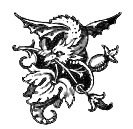

ACT II – SCENE VII – HARRISON COUNTY DELEGATE JOHN CARLILE COMES DOWN HARD AND LONG WITH A DETAILED HISTORY – IN FAVOR OF LINCOLN AND UNION, CAUSING RAMBUNCTIOUS OUTRAGE IN THE GALLERY – AND IS HISSED AS HE IS LEAVING.
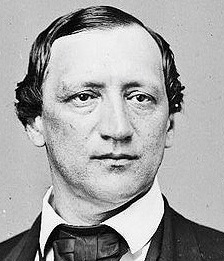
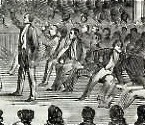
. . . Carlile was loyal at heart and recognized the right of the government to enforce its laws everywhere. In a speech delivered March 7th, he declared it had the right to collect the duties in the seceded States as in all others; and the motion just noticed, to strike out of the Federal Relations report a contrary declaration, confirms his attitude. (Hall, p. 159).
Thursday – March 7, Richmond, VA: Nineteenth Day of the Convention
Mr. Carlile makes a very long speech against secession, and criticizes its advocates in the Convention and on the Enquirer. Mr. Cox replies, deploring the action of the seceded states, opposing coercion, and placing his hopes of peace on the border states.
{Mr. JOHN S. CARLILE, of Harrison—
Mr. President, in this the hour of your country’s greatest peril, when the strength of our system of government is being severely tested, I should be slow to believe that any but patriotic emotions could influence the members of this body. Candor and frankness, therefore, should characterize our discussions, and a love of country alone should influence our deliberations. In this spirit I enter upon this discussion.
The resolutions before the Convention are designed, and if adopted will have the effect, to place Virginia in hostility to the Federal Government, which Federal Government is Virginia’s government. In other words, to commit Virginia to a war against herself, and to connect her with the Cotton States, so as to share with them the disastrous consequences that may flow from the rebellious attitude assumed for them and in their name, by the men who for the time have the control of their respective State Governments. Mark it well, Mr. President; note it, gentlemen of the Convention; look to it, ye people of Virginia — it is the purpose of those who are pressing with such eagerness and such earnestness upon this body these resolutions, if they can have them adopted here, never, never to allow the people to pass upon them.
. . . I will here remark, Mr. President, that every movement that has been made in the State of Virginia, looking to secession, has been in exact conformity to the programme laid down by the Richmond “Enquirer.” In October last, before the election, the editors of that paper advised the Cotton States immediately and separately to secede, and stated that they would inevitably drag Virginia after them. . . I have said that the appearance of the Inaugural Address of the President has been merely seized upon as the occasion for the submission of these resolutions, and the eloquent declamation to which we have listened day after day, during the present week, has been but in compliance with the programme “to fire the Southern heart,” to induce members of this body, if possible, to forget that they had a constituency behind them to whom they were responsible—not responsible to those who get up meetings in the streets of this city, and call for reports from Peace Commissioners to be made to them.
. . . We are urged to adopt these resolutions “to save Virginia from civil war.” Oh, but a tear will course down my cheek, when the fact is made patent to my mind that my mother Commonwealth is to be driven into a course of conduct which her judgment does not approve, by appeals to her fears!
Mr. President, what are we called upon to do? Let us examine these resolutions? Let us see what gentlemen expect of this Convention? To make war upon the Constitution of our own country; to destroy our own Government, the work of our own revolutionary fathers . . .?
Why, sir, I suppose if these gentlemen expected to have been satisfied with Mr. Lincoln’s inaugural address, they would not have opposed him so bitterly as they did. And here in the midst of the assembled Representatives of Virginia, I declare, on my own responsibility as a man and a Virginian, that I am agreeably disappointed in the pacific tone that breathes through the whole of that inaugural address.
. . . What less could Mr. Lincoln have said? I am not here as his defender or his apologist. God knows, if there is a man in the land who regrets his existence and the existence of his party more than I do, I know him not. But I am a Virginian, born and raised in the State, never having lived out of it, and not expecting to die out of it. I have too much Virginia blood in my veins to do the slightest injustice to the meanest reptile that crawls. Mr. Lincoln dare not recognize these Ordinances of Secession, by which these States say they have severed the tie that bound them to the rest of the States of the Union. And I cannot for the life of me reconcile the opinions offered by the distinguished gentleman from Bedford [Mr. GOGGIN], denying the right of secession, but yet recognizing it as a duty on the part of Virginia, to give her aid, and to spill her blood, if necessary, and expend her money, and appropriate her men, in defence of those who have done that which, if they have not the right of secession, is evidently an illegal act.
. . . Not only by those who deny the right of secession, but by those who advocate the right of secession are we to be dragged into a committal of the people of Virginia, without their being consulted upon it, to a policy which unites our fortunes with those who contemn the laws of the country, and despise and set at nought its authority. The people I have the honor to represent upon this floor are a brave, and a gallant, and a law-abiding people, and you may travel where you will—North, South, East, or West—and a more honorable, or a more intelligent people is not to be found on the face of God’s green earth ; a more loyal people to the soil of their birth is nowhere to be found; a people devoted to the institution of slavery, not because of their pecuniary interest in it, but because it is an institution of the State; and they have been educated to believe in the sentiment uttered by the gentleman from Halifax the other day, and which I cordially endorse, “that African slavery, as it exists in the Southern States, is essential to American Liberty.”
The people that I have the honor in part to represent, have not been seized with this frenzied madness which has seized our friends in other parts of the Commonwealth, to induce them—brave and gallant though they may be—to adopt a cowardly—I use this language because I have no other, for I have never been inside a school house to learn since I was fourteen years of age—to adopt a cowardly course, to run away and give up all their inheritance in this great country;
. . . Sir, we know we have the protection of our Common Constitution ; we know that that flag is ours ; we know that the army is ours; we know that the navy is ours; we know that in any battle in defence of our rights, fifteen hundred thousand gallant voters in the non-slaveholding States will rush to our assistance, and under the stars and stripes will hurl from power any and all who dare to take advantage of the position they have obtained to our injury or oppression. We cannot reconcile secession with our notions of Virginia’s chivalry and Virginia’s courage. But we know, Mr. President—and no man upon this floor has denied it—that this Government we are called upon to destroy has never brought us anything but good.
. . . But, Mr. President, we have heard a great deal here about equal rights—that’s the expression, I believe. I never heard it specified what the rights were. We have heard a great deal about “rights,” but very little about “duties.” “Rights” are in every man’s mouth—”duties” are never alluded to. “Rights” are to be enjoyed ; “duties” are to be performed.
. . . I have been surprised—no, I will not say surprised—I have been struck with the adroitness on the part of the secessionists in this body in evading an express declaration that they believe in the right of secession. They will not stop to discuss the right of secession. . . .They (Virginians) are a law-abiding, a Constitution-loving people; and before you can get them to go with you for an ordinance of secession, or for resolutions pledging them to a course of policy which will bring about the same result that an ordinance of secession will bring about, you must first convince them of the morality and legality of the act.
Now, sir, how will you attempt, at this day and at this hour, to maintain before the people of Virginia the rightfulness of secession? Astute, learned and great as you may be, you are not astute, learned and great enough for that. Its absurdity is too palpable ever to be maintained successfully before a Virginia people.
. . . We have been told in the progress of this argument that the Government of the United States was a mere league between co-States: in other words, that the spirit of the old Confederation exists in the Federal Constitution, although the former has been superseded and abolished by the latter. We must live in an age of political wonders and miracles, if not natural ones. I confess that I heard with astonishment the old Confederation lauded as the best Government in the world, when I had regarded it as settled and given up fifty years ago, as a matter of history, that it was an impracticable Government.
It seems to me perfectly clear that the Government created by the Federal Constitution is, strictly speaking, a government of the people. It is a Government: for within its prescribed Constitutional limits it acts upon the people, and enforces against them its laws through its own judiciary or that of each State. Within its own Constitutional limits it is absolute and supreme.
By the second section of the sixth article of the Constitution of the United States it is declared that ‘this Constitution and the laws of the United States, which shall be made in pursuance thereof, &c., shall be the supreme law of the land; and the judges in every State shall be bound thereby, anything in the CONSTITUTION or laws of any State notwithstanding.’ Does not this supremacy of constitutional law necessarily make the Government of the United States as much the Government of the people of this State as her own immediate Government? It is too clear to admit of argument that it does.
CARLILE CONTINUED
. . . Mr. Spratt sent from South Carolina as Commissioner to the State Convention of Florida, while the question of secession was pending before that body, and again in a letter which he addressed to a delegate from Louisiana to the Montgomery Congress, uses the following language:
“The South is now in the formation of a Slave Republic. This, perhaps, is not admitted generally. There are many contented to believe that the South, as a geographical section, is in mere assertion of its independence ; that, it is instinct with no especial truth—pregnant of no distinct social nature; that for some unaccountable reason the two sections have become opposed to each other; that for reasons equally insufficient, there is a disagreement between the peoples that direct them; and that from no overruling necessity, no impossibility of coexistence, but as mere matter of policy, it has been considered best for the South to strike out for herself and establish an independence of her own. This, I fear, is an inadequate conception of the controversy.
“The contest is not between the North and South as geographical sections, for between such sections merely there can be no contest; nor between the people of the North and the people of the South, for our relations have been pleasant; and on neutral grounds there is still nothing to estrange us. We eat together, trade together, and practice, yet, in intercourse, with great respect, the courtesies of common life. But the real contest is between the two forms of society which have become established, the one at the North and the other at the South. Society is essentially different from Government—as different as is the nut from the bur, or the nervous body of the shell-fish from the bony structure which surrounds it; and within this Government two societies had become developed as variant in structure and distinct in form as any two beings in animated nature. The one is a society composed of one race, the other of two races. The one is bound together but by the two great social relations of husband and wife, and parent and child; the other by the three relations of husband and wife, and parent and child, and master and slave. The one embodies in its political structure the principle that equality is the right of man ; the other that it is the right of equals only. The one embodying the principle that equality is the right of man, expands upon the horizontal plane of pure Democracy; the other, embodying the principle that it is not the right of man, but of equals only, has taken to itself the rounded form of a social aristocracy. In the one there is hireling labor, in the other slave labor; in the one, therefore, in theory at least, labor is voluntary; in the other involuntary;
***. . . Mr. Commissioner PRESTON, in his speech before this body, winds up a rhapsody of the same character, as follows : “None but a subject race will labor at the South.”
There it is in a nutshell. That is it — that is the feast to which the people of Virginia are invited; that is the Government to be provided for the people I have the honor to represent here; for my children, for your children and the children of the people of this good old State.*** South Carolina initiated this movement; South Carolina will control this movement; South Carolina will give direction to this new cotton Government, if ever a permanent one is formed, which, I trust in God, never will be, and humbly believe, never can be. But, if it ever should, it must of necessity—if these Commissioners from Georgia and South Carolina who addressed us, understood what they were talking to us about—partake strongly of a military character, and strongly of the character of the present Government of South Carolina, where no man within her limits is eligible to a seat in the Lower House of her Legislature, unless he is the owner of ten negroes and 500 acres of land.
. . . How long, if you were to dissolve this Union — if you were to separate the slaveholding from the non-slaveholding States — would African slavery have a foothold in this portion of the land? I venture the assertion, that it would not exist in Virginia five years after the separation, and nowhere in the Southern States, twenty years after. How could it maintain itself, with the whole civilized world, backed by what they call their international law, arrayed for its ultimate extinction? — with this North that is now bound to stand by us, and to protect slavery, opposed to us, and united with England, France and Spain, so to control the destiny of the slaveholding Republic as to work out the ultimate extinction of the institution?
Mr. President, we have heard a great deal said about coercion, and the resolutions under consideration refer to that subject.
Will gentlemen define what kind of coercion it is they desire the people of Virginia to pledge themselves to resist? It is a most remarkable fact, that during the progress of this disunion movement, generalities and generalities alone are indulged in, accompanied with sensation telegrams. In the language of the lawyers, I call upon you to file your bill of particulars.
. . . And, sir, in this country the sovereign power is in the people. It has for the time been usurped, but just as sure as the sun shines in a clear and cloudless sky, that people will rebuke those who have endeavored to bring on this distracted condition of things, and to destroy the fairest Constitution and the freest Government ever erected by man, upon the footstool of God. . . .
(CARLILE CONTINUED AT LENGTH AND WAS INTERRUPTED BY JAMES H. COX)
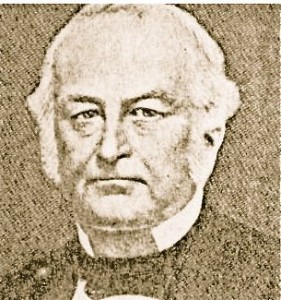
Mr. JAMES H. COX—
I want a vote upon this resolution this day, if it can be had. I should not now rise to say one word to the Convention at this late hour of the day, when I desire that the vote shall be taken, were it not for the extraordinary speech made by the gentleman [Mr. CARLILE], who has just taken his seat.
He commenced his speech by saying that the inaugural was not the cause of the introduction of the resolution here, but was made the excuse for it. The original resolution was offered by myself, I intended to have offered that resolution many days ago, before I saw the inaugural. But I consulted some of the members of the Committee of twenty-one, and I was informed—
Mr. CARLILE—
Will the gentleman allow me to interrupt him right at this point. In the whole of my remarks I did not have in view your original resolution. My remarks were addressed principally to the amendment of the gentleman from Goochland [Mr. LEAKE].
Furthermore, I desire to say, if any remark that I have made is calculated to be construed by any gentleman into a personally offensive remark, I entirely disclaim any such intention whatever.
Mr. COX [resuming]—
Mr. President, the gentleman from Harrison has expressed upon the subject of coercion, sentiments that I did not believe would fall from any member in this Convention. [Applause.]
The PRESIDENT
The galleries will be cleared upon any renewal of such manifestations.
Mr. COX—
If I understood the gentleman, he tells us that the coercion of a sovereign State is war. Sir, it is war; and the reason I want a report upon the subject of coercion, the reason I want a test vote, showing that Virginia is opposed to coercion, is that I want to prevent civil war.
Sir, that gentleman tells us that he is in favor of this Union, and he sings paeans to the Union. I like him love the Union ; I want — though the hope is now faint to preserve or re-construct this Union and keep it entire in all its parts. But, sir, will abuse of South Carolina—as wrong as she may have been, and I condemn her for it—will abuse of her and her people—will abuse of the Southern people who have seceded—will denunciations of them as rebels and traitors be calculated to bring them back to us?
. . .
But will coercion accomplish that end? Will abuse and denunciation of those States accomplish it? No sir! The very moment you attempt coercion you produce war, and war will end this Union now and forever. It breaks up all hope; faint as the hope is now—that faint hope is gone forever. I will not undertake to discuss this question of coercion, as it was so ably done by my friend from Halifax [Mr. FLOURNOY], every word of whose speech I endorse most cordially; but I will not, at this late hour, undertake to detain the Convention by a discussion on that subject.
I tell the gentleman who has just taken his seat, that if he wants o preserve this Union, he cannot preserve it by any acts of coercion or any attempt to collect unwilling tribute from these States that have thought proper to leave us.}
Referring to Carlile’s speech of March 7th, for which he was hissed as he was leaving the Convention accompanied by two ladies, Marshall M. Dent, member from Monongalia, wrote to his paper, the Morgantown Star, that the speech “struck the secessionists like a thunderbolt and was decidedly the boldest effort of the session.” (Hall, p. 161)
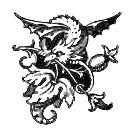
March 11 – Monday, Richmond, VA.: Logan Osburn writes home . . .
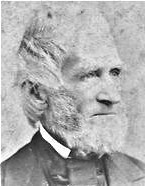
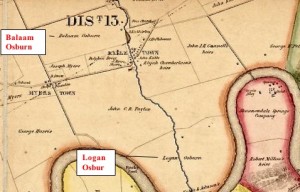
{Logan Osburn to his father-in-law, Balaam Osburn, who was back home in Kabletown. The letter has been transcribed just as it was written on March 11th, 1861 while Logan was still in Richmond. There are no changes to spelling or grammar. (P. Douglas Perks):
{Great excitement continues to exist in our councils. The outside purpose is exceedingly offensive. The sensation dispatches repulsive to conservatism. All manner of means resorted to affect our action. Threats have been made to drive our body from the convention hall at the point of the bayonet if we fail to pass an ordinance of secession. We are threatened with civil war, by timultuos uprising of the people, if we hold out much longer in our efforts to preserve the union. A delegate of high respectability approached Robt Y. Conrad & myself last night as we walked the hall of the hotel & inquired of Mr. Conrad, if any important vote would be taken today? And assigned as the reason of his inquiry that his constituents were about taking steps to withdraw him from the convention, with a view of defeating its ultimate action, & if it was commenced no one could tell where it would end. He desired of course to go home and arrest it. T J Randolph of Albemarle is here & says the entire county is now for secession. That they do not look to the action of this convention for any relief, but the spring election will secure a great majority of secessionists to the legislature. They will then call an extra session thereof, order an election for another convention, secede &c. &c.
You must therefore lookout for reliable union candidates for the legislature.
I really think the secession party are seriously damaged. It cannot be possible that sensible men (as I know many of them are) of sane minds could rejoice (as they do publicly) about the hotels at every indication of collision between the federal authorities and those of the seceded states.
Rumours have reached here this evening that the authorities at Washington
will withdraw Major Anderson from Fort Sumter & (I trust in God it is true) it is regarded as a signal of peace & really the secessionists are gloomy and desponding & regard it as a trick to delude & deceive the people. Wm C. Rives delivered an address at the African church in support of the report of the peace congress at Washington on Friday night last, which was characterized by distinguished ability and irresistible arguments. He is an accomplished orator and gentleman. Geo W. Summers commenced his exposition & defence of the report before the convention to day. He looks & talks like Hector, reasons cogently argues with sledge hammer force & clinches it with ten penny wrought nails as he goes. He gave way to a motion to adjourn without finishing will resume in the morning and has already proven to every man open to conviction that better guarantees are provided for the institutions & interests of the South by the support of the peace conference than by Crittendon’s amendments. I spent an evening at I. M. Betts (probably John Minor Botts-ED) last week, I regretted your absence. His independent manner of speaking, honesty, candor, & frankness almost captivated me. He is possessed of an extra-ordinary mind, unequaled simplicity of manner – and conversational talent. One of Virginia’s noblest sons & one whom she will yet rejoice to honor. I am proud of his acquaintance, for it has entirely removed an ill-founded prejudice I honestly entertained. His views are not ultra, but based upon sound constitutional doctrine, maintained by
conclusive argument. Yours &c.”
Threats have been made to drive our body from the convention hall at the point of the bayonet.}
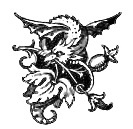
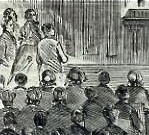
March 15 – Friday, Camp Hill School House, Bolivar, VA:
JEFFERSON COUNTIANS FORWARD TO THE CONVENTION’S DELEGATES THEIR FORMAL OPPOSITION TO SECESSION
{On motion, E. H. Chambers was called to the Chair, and A. McCliesh appointed Secretary.
On motion, it was
Resolved, That there is no change of public sentiment upon the subject of secession, so far as the people of Harper’s Ferry and Bolivar are concerned, and that we fully endorse the resolutions adopted by the Convention at Charlestown, on the 21st January, 1861, which nominated the Union candidates, Messrs. Osburn and Barbour.
On motion, it was
Resolved, That the position of our Senators in Congress and in the State Senate, does not reflect the true sentiments of their constituency; and that we regard their conduct as being in open rebellion to our interests as a people and at war with the Constitution of our beloved country.
On motion, it was Resolved, That a copy of the proceedings of this meeting be sent to Messrs. Osburn and Barbour, delegates to the Virginia Convention. The meeting then adjourned.
E. H. CHAMBERS, Chairman
A. McCliesh, Secretary.}
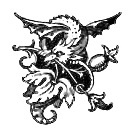
ACT II SCENE VIII – WITH THE UNIONISTS HOLDING THE MAJORITY IN THE CONVENTION, AND NO SUPPORT FOR ACTION ON SUMTER FROM HIS OWN CABINET, PRESIDENT LINCOLN SEEKS OUT CONTACT WITH UNIONIST LEADER GEORGE W. SUMMERS, POSSIBLY TO URGE SUMMERS AND THE OTHER UNIONIST DELEGATES TO VOTE AN ADJOURNMENT THE CONVENTION SINE DIE, THUS ENDING IT AND THE POSSIBILITY OF VIRGINIA’S SECESSION. ON APRIL 4TH, THEY SUCCESSFULLY VOTE BACK A MOTION
TO SECEDE. (More on GEORGE W. SUMMERS)
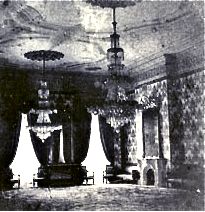
March 20 – Wednesday, Washington, D.C:
Lincoln sends word to George W. Summers, a friend and leader in the Unionist majority at the Convention, seeking a private meeting.
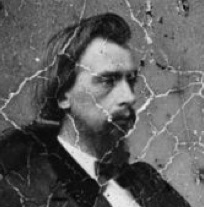
George Nicolay, Lincoln’s secretary wrote later:
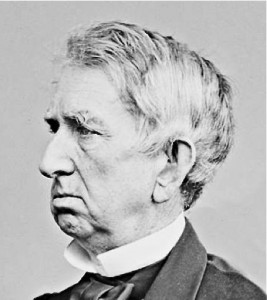
Mr. Seward had an abiding faith in the Unionism and latent loyalty of Virginia and the border States. He wished by conciliation to re-awaken and build them up; and thereby not merely retain these States, but make them the instruments, and this feeling the agency, to undermine rebellion and finally reclaim the Cotton States. Lincoln did not fully share this optimism; nevertheless, he desired to avoid actual conflict, and was willing to make any experimental concession which would not involve the actual loss or abandonment of military or political advantage. The acts of the previous Administration had placed Fort Sumter in a peril from which, so the military authorities declared, he could not extricate it. . . ***He (Lincoln) had ordered Fort Pickens reenforced; he was daily awaiting news of the execution of his announced policy to “hold, occupy, and possess” the Government posts. Pickens once triumphantly secured, the loss of Sumter could be borne. But might not the loss of Sumter be compensated? Might he not utilize that severe necessity, and make it the lever to procure the adjournment of the Virginia Convention, which, to use his own figure, was daily shaking the rod over his head? This we may assume was his reasoning and purpose when about March 20, *** either directly or through Seward, he invited Summers, the acknowledged leader of the Union members of the convention, to Washington. Summers, however, hesitated, delayed, and finally refused to come. (Nicolay, Hay, “Abraham Lincoln: A History” Vol. 3 pp. 427-428)}
March 29 – Friday, Washington, D.C.: LINCOLN AND HIS CABINET VOTE TO SEND PROVISIONS TO FORT SUMTER, MAKING WAR MUCH MORE LIKELY. LINCOLN’S INTEREST IN SPEAKING WITH GEORGE W. SUMMERS WAS RAPIDLY BECOMING MOOT AFTER SUMMERS HAD BEEN SLOW IN RESPONDING TO AN EARLIER INVITATION
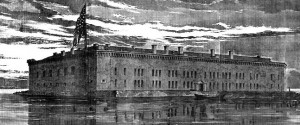
At noon on the 29th of March the Cabinet assembled and once more took up the absorbing question of Sumter. All the elements of the problem were now before them — Anderson’s condition and the prospects of relief as newly reported by Fox; the state of public opinion in Charleston as described by Hurlbut; the Attorney-General’s presentation of the legal aspects of an attempt at collecting the customs on shipboard; the Secretary of the Treasury’s statement of the condition and resources of the revenue service; the report of the Secretary of the Navy as to what ships of war he could supply to blockade the port of Charleston; and, finally, the unexpected attitude of General Scott in advising the evacuation of Fort Pickens. All these features called out so much and such varied discussion, that at length the Attorney-General, taking up a pen, rapidly wrote on a slip of paper a short summing-up of his own conclusions. This he read aloud to the President, who thereupon asked the other members of the Cabinet to do the same. They all complied. . . (Nicolay, Hay, p. 429).
The majority opinion of the Cabinet on the 15th of March had been against the expediency of an attempt to provision Fort Sumter; but now, after a lapse of two weeks, the feeling was changed in favor of the proposed measure. Irrespective of this fresh advice, however, the President’s opinion was already made up. On the day previous he had instructed Captain Fox to prepare him a short order for the ships, men, and supplies he would need for his expedition . . . (Nicolay, Hay, p. 433)
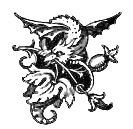
April 1 – Monday, Richmond, VA:
THE VIRGINIA LEGISLATURE VOTES TO BLOCK FEDERAL MILITARY MOVEMENTS ACROSS VIRGINIA
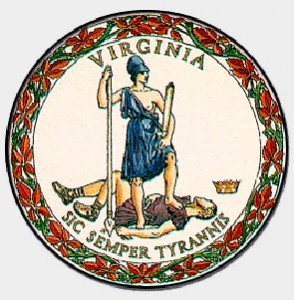
The Legislature at once put itself in an attitude of quasi-rebellion, by resolving on the second day of the session, that it would resist any attempt of the Federal Government to coerce a seceding State. It soon passed an act to assemble a convention; and by a large appropriation for defense, already mentioned, by issuing treasury notes, by amending the militia laws, and by authorizing counties to borrow money to purchase arms, and especially by its debates, further increased the prevailing secession undertow during the whole of its extra session, from January 7 to April 4. (Nicolay, Hay, p. 421)
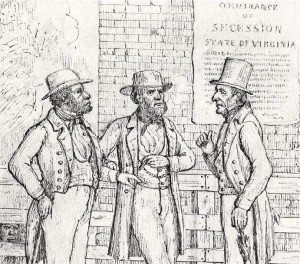
ACT II – SCENE IX – THE CONVENTION’S UNIONISTS SHOW THEIR POWER WITH A 90-45 VOTE AGAINST A SECESSION MOTION – A PERFECT MOMENT TO QUASH THE ENTIRE SECESSION PROCEEDING THROUGH THE USE OF A MOVED AND VOTED ADJOURNMENT SINE DIE (“NOT TO BE CONTINUED”). THE APPARENT LACK OF LEADERSHIP, FOSTERED PERHAPS BY THE INTENSELY HOSTILE ENVIRONMENT TOWARDS THE UNIONISTS AND A MIS-PLACED FAITH AMONG SOME UNIONISTS IN THE POTENTIAL REWARDS FROM CONTINUED DEBATE ALLOW THE OPPORTUNITY TO SLIP AWAY – AN OVERLOOKED KEY MOMENT IN THE HISTORY OF THE CIVIL WAR AND NATION.
April 4 – Thursday, Richmond, VA:
Forty-Third Day of the Convention
In the evening session on April 4, 1861, Delegate Lewis Harvie, of Amelia County, introduced a resolution “that an ordinance resuming the powers delegated by Virginia to the Federal Government” be drafted and submitted to the voters for ratification. As recorded in the official convention journal, the resolution failed by a vote of 90 to 45. Of 17 convention members who did not vote that day, 4 are known to have favored the resolution and 7 were known to have opposed it . . . 63 delegates from west of the Blue Ridge Mountains, where in many areas there were very few enslaved African Americans, voted to remain a part of the United States, but only 15 delegates from the same area voted for secession.

{The Clerk then read again the proposed amendment offered by Mr. HARVIE, of Amelia, to the sixth section of the report of the Committee on Federal Relations, as follows:
“Resolved, That an ordinance resuming the powers delegated by Virginia to the Federal Government, and provision for submitting the same to the qualified voters of the Commonwealth for adoption or rejection at the polls in the Spring elections in May next, should be adopted by the Convention.”
. . . The CHAIRMAN—
The question will be upon striking out the 6th resolution of the Committee and inserting the amendment of the gentleman from Amelia, and upon this question the ayes and noes are called.
The ayes and noes were then called upon the question to strike out and insert, which the Convention refused to do by a vote of 45 to 88, as follows :In the Proceedings of April 9, page 370, Mr. Mallory noted that he had voted in the affirmative on Mr. Harvie’s substitute to the 6th resolution of the Committee of Twenty-One. The Journal lists J. B. Mallory, W. C. Scott, R. H. Turner, F. P. Turner and Tyler among the affirmative votes, giving a total of 45. In the negative votes, the Journal omits J. B. Mallory, but includes Coffman, Gray, Marshall and Marr, making a total of 90.
YEAS—Messrs. Ambler, Barbour, Blakey, Boisseau, Borst, Bouldin, Branch, Cecil, Chapman, Conn, R. H. Cox, Fisher, Garland, Graham, Goggin, J. Goode, Hale, L. S. Hall, Harvie, Holcombe, Hunton, Isbell, Kent, Kindred, Lawson, Leake, Montague, Morris, Morton, Neblett, Randolph, Richardson, Seawell, Sheffey, Speed, Strange, Williams, Wise, Woods, Wysor-45.
(Jefferson County delegates in boldface-ED)
NAYS-Messrs. Janney [President], Armstrong, Aston, A. M. Barbour, Baylor, Berlin, Blow, Boggess, Boyd, Brent, Brown, Bruce, Burdett, Burley, Byrne, Campbell, Caperton, Carlile, Carter, C. B. Conrad, R. Y. Conrad, Couch, Critcher, Custis, Dent, Deskins, Dorman, Early, Echols, Flournoy, French, Fugate, Gillespie, Gravely, Addison Hall, Cyrus Hall, Ephraim B. Hall, Hammond, Haymond, Hoge, Hubbard, Hughes, Jackson, Marmaduke Johnson, Peter C. Johnston, Kilby, Lewis, McComas, McGrew, McNeil, Macfarland, J. B. Mallory, Marye, Sr., Maslin, Masters, Moffett, Moore, Nelson, Orrick, Osburn, Parks, Patrick, Pendleton, Porter, Preston, Price, Pugh, Rives, R. E. Scott, Sharp, Sitlington, Slaughter, Southall, Spurlock, Staples, A. H. H. Stuart, C. J. Stuart, Summers, Sutherlin, Tarr, Tayloe, Tredway, Waller, Whitfield, Wickham, Willey, Wilson-88.}
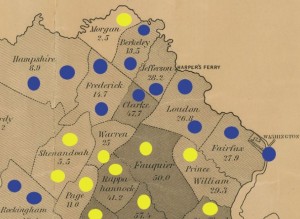
Map of April 4, 1861, Vote on Secession
E. Hergesheimer, Map of Virginia Showing the Distribution of its Slave Population from the Census of 1860, C. B. Graham, Lithographer (Washington, D.C.: Henry S. Graham, 1861), Library of Virginia.
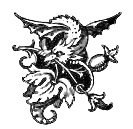
ACT III – TWO ILL-TIMED APPOINTMENTS WITH LINCOLN

Baldwin, Randolph, Preston, Stuart, Lincoln
ACT III – SCENE I – BALDWIN SEES LINCOLN AFTER “THE STAR OF THE WEST” HAS SAILED FOR FORT SUMTER.
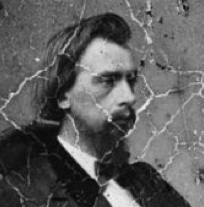
{The anxiously-looked-for news of the reinforcement of Fort Pickens did not arrive. (On March 29) The Cabinet once more voted, and changed its advice. The President ordered the preparation of the Sumter expedition. A second expedition to Fort Pickens had been begun . . . At this juncture Baldwin made his appearance, but clearly he had come too late. By this time (April 4, 1861) his presence was an embarrassment, and not a relief. Fully to inform him of the situation was hazardous, impossible; to send him back without explanation was impolite and would give alarm at Richmond.

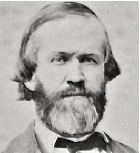
Lincoln, therefore, opened conversation with him, manifesting sufficient personal trust to explain what he intended to have told Summers . . . This called forth Baldwin’s dogmatic and dictatorial rejoinder, from which Lincoln discovered two things: first, that Baldwin was only an embryo secessionist; and, second, that the Virginia Convention was little else than a council of rebellion. Hence the abrupt termination of the interview, and the unexplained silence at Richmond. (Nicolay, Hay, “Abraham Lincoln: A History” Vol. 3 pp. 427-428)
Mr. Lincoln said to him more than once, “You came too late. Colonel Baldwin,” who had gone to the interview full of hope and confidence as to its results, was obviously much depressed and disappointed at the unfavorable turn of affairs. He expressed to me his fears for the country; said that the presidents reserve, after having invited him to the interview, and sent a special messenger to him, convinced him that he had changed his mind . . . (From the recollection of the messenger who brought Baldwin to Lincoln. Magruder, Allan B. (April 1875). “A Piece of Secret History.” The Atlantic Monthly Vol. 35 Issue 210. Boston, MA: Atlantic Monthly Co. pp. 438-446.)
April 7 – Sunday – Washington, D.C.:
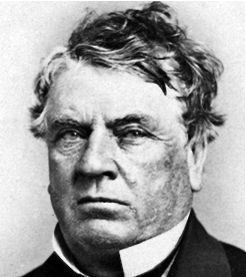
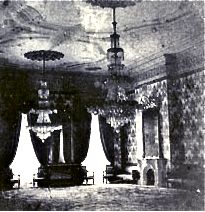
{Mr. John Minor Botts of Richmond, VA was in Washington and received a note from President Lincoln inviting him to call. He spent the evening, from seven to eleven, with Mr. Lincoln, and in the course of the conversation the President told him of his message to Summers and his interview with Baldwin. Lincoln had said to Baldwin: “Although I fear it is almost too late yet I will submit, any way, the proposition I intended when I sent for Mr. Summers.Your Convention has been sitting now nearly two months and all they have done has been to shake the rod over my head. You have recently taken a vote in the Convention on the right of secession, which was rejected by 90 to 45, a majority of two-thirds, showing the strength of the Union party in that Convention; and if you will go back to Richmond and get that majority to adjourn and go home without passing an ordinance of secession, so anxious am I for the preservation of the peace and to save Virginia and other border States from going out, I will take the responsibility of evacuating Fort Sumter and take the chance of negotiating with the Cotton States which have already gone out.”
“Well,” said Mr. Botts, “How did Mr. Baldwin receive that proposition?”
Raising his hands, Mr. Lincoln replied: ”He would not listen to it for a moment; he hardly treated me with civility. He asked me what I meant by an adjournment. Did I mean an adjournment sine die? ‘Why, of course, Mr. Baldwin, I mean an adjournment sine die. I don’t mean to assume such a responsibility as that of surrendering that Fort to the people of Charleston upon your adjournment and then for you to return in a week or ten days and pass your ordinance after I have given up the Fort.’”
Mr. Botts felt very much incensed that Mr. Baldwin should have rejected such a proposition and asked if the President would authorize him to make that proposition to the Union men of the Convention?
“O,” said Lincoln, “it is too late, the fleet has sailed, and I have no means of communicating with it.” (Hall, pp. 171-172.)}
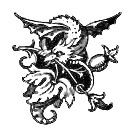
ACT III – SCENE II – PERHAPS ON BALDWIN’S INFORMATION FROM HIS PRIVATE VISIT TO PRESIDENT LINCOLN, THE CONVENTION DECIDES TO NOMINATE AND SEND AN OFFICIAL DELEGATION TO LINCOLN. THEY, TOO, FIND THAT LINCOLN’S POSITION REGARDS SUMTER HAS HARDENED, BUT IS UNEXPLAINED.
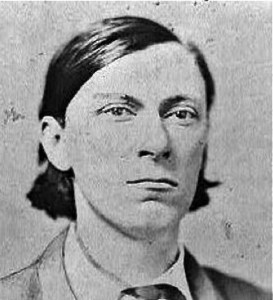
THE RICHMOND ENQUIRER’S FIREBRAND EDITOR, ROGER PRYOR, POSSIBLY LEARNING OF LINCOLN’S NEW RESOLVE TO FORT SUMTER, SPEEDS TO CHARLESTON TO URGE SOUTH CAROLINIAN LEADERS TO BEGIN THE ATTACK ON FORT SUMTER – JUST AS THE CONVENTION’S DELEGATION DEPARTS FOR WASHINGTON.
The importance of its (Virginia’s) relation to that supreme tragedy could not well be exaggerated. The Cotton States had taken all the declaratory steps toward insurrection; but they waited for Virginia to join them and give the signal. It was the message Roger A. Pryor (the editor of “The Richmond Enquirer) carried to Charleston that fired the opening gun of the conflict; and it was on Virginia soil beyond all other that the dragon teeth were sown and reaped the deadly harvest. (Hall, P. 18)
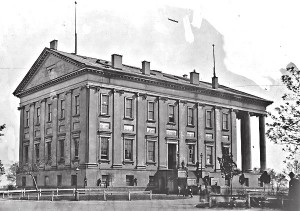
April 8 – Monday, Richmond, VA: Forty-Sixth Day of the Convention
A moment of heightened tension:
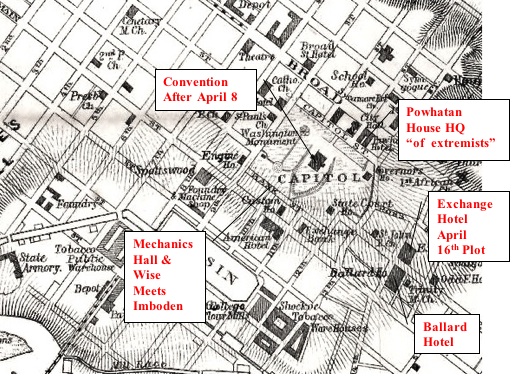
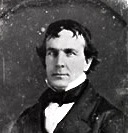
{Mr. CONRAD — I do not choose to be interrogated. I have borne with patience and forbearance all these vituperations, all these epithets which have been applied to me, in connection with others, in reference to the opinions which different members of this Convention may entertain upon this floor. I desire to treat every member here with all respect; and, sir, I shall continue to disregard utterly all denunciations of my opinions, or of the opinions of those with whom I may stand upon this floor . . .}
After hours of debate on the matter, the Convention reconvenes at 5 PM and votes 63 to 57 to appoint three Commissioners to visit President Lincoln “and respectfully ask of him to communicate to this Convention the policy which the Federal Executive intends to pursue in regard to the Confederate States.” Barbour and Osburn of Jefferson County vote against the idea.
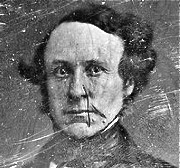
William B. Preston, the author of the proposal, is promptly chosen as one of the delegates.
{Mr. WISE adds a few minutes later:
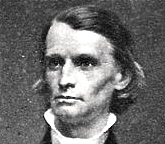
There is but one condition, Mr. President, on which you could get me to go to Washington. That is, that you should send me there alone, and let me adopt my own course. Do that, and I think I could end the controversy in a very short time. I would treat the President with the utmost kindness, and I have no doubt that he and I would have one of the most perfectly confidential cheek by jowl talks. (Laughter.) We would meet in all courtesy, and part in peace. But I would understand him perfectly before I left him, or else he would have a great deal of trouble to avoid being understood, and he would understand me distinctly.
Personally, I pity the man. No man could be in a more pitiable condition than an ignoramus and coarse creature as he is, elevated by a surprise, to one of the most responsible positions on the face of the earth, with the destinies of the great country in his hands. I have no doubt that he is unapprized of the sentiments of the hearts of this people, a portion of the people he governs. I would try, on my part, to make him understand them. I would not come back with any word, or shadow of word or thought, that could deceive any body, especially when common mercy requires that there should be no veil over the face of the prophet at this hour.
Sir, no veiled prophet of Khorassan, no Mokanna, was ever more dangerous to a people than the veiled President who now sits in the Executive Chair of this republic.}
. . . The chosen delegates to visit President Lincoln were:
A. H. H. STUART, of Augusta, GEORGE W. RANDOLPH, of Richmond, to join
GEORGE BALLARD PRESTON.
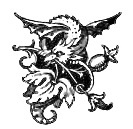
April 8 – Monday, Richmond, VA: A traveler comes, observes, writes.
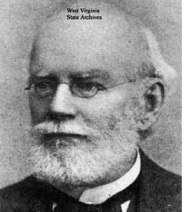
(William Henry Edwards, a native of the Kanawha County community of Coalburg, was a renowned entomologist. In April 1861, Edwards was in Richmond attending the Richmond Convention, providing insight into this tumultuous event).
{I went from New York to Richmond on Monday, April 8th, 1861, at the request of the
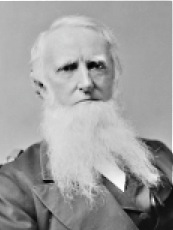
Hon. Allen T. Caperton, who was there as a member of the Legislature . . . In the convention, the Hon. George W. Summers and Dr. Spicer Patrick were members from Kanawha. It was a gathering of the ablest men of the State. Ex-President Tyler was one of them, and so was ex-Governor Wise. From one of the lower counties came Jeremiah Morton, whom I had known as a stockholder in one of the cannel coal-oil companies of Paint Creek, in Kanawha county, and also as one of the recently organized White Sulphur Springs Company.
When I left New York, public opinion throughout the North was unsettled. The people were astonished at the violent action of the most Southern States, and could not guess whither the currents were carrying the country. Many of the papers were outspoken against any attempt at coercion by the government, none of them more so than the influential New York Tribune,
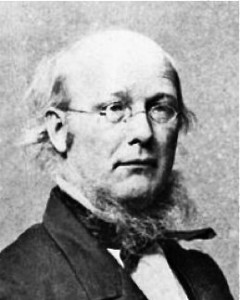
edited by Horace Greeley. He had gone so far as to utter the memorable words:”Erring sisters, go in peace.” How many of the tens of thousands who read and swore by that paper thought as Greeley thought there was as yet no means of knowing. The Herald, owned and run by the Scotchman, James Gordon Bennett, was clamoring for the right of a State to secede. Fernando Wood, the Mayor, openly advocated the secession of New York city, and would have it join the Confederacy. It was supposed that the Democratic party, as a whole, would refuse to follow President Lincoln if he should attempt coercion. The Governor, Horatio Seymour, at a mass meeting held in the city on January 31st, had vigorously opposed coercion of any sort, and he was influential with the Democracy. Therefore the North held itself in suspense, and most of the friends of the Union had faith that the black clouds would blow away.
On the day I left there was no symptom of present disturbance, at any rate. So when I reached Washington, I saw nothing to indicate a coming storm. Passing through Alexandria, I noticed a pole from which flew a new style of flag, and someone remarked that this was the emblem of the Confederacy, but there was no talk about it. People were keeping their opinions to themselves. That was all to Richmond. I put up at Ballard’s Exchange Hotel,
where I found Mr. Caperton and several friends from the Western counties. Judge Summers was one of these.
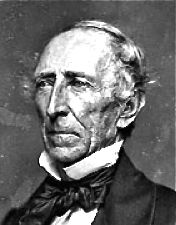
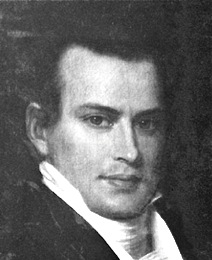
He, in connection with John Tyler, William C. Rives and others, had represented Virginia in a peace deputation that met in Washington late in February or early in March, but which had been unable to obtain assurances or promises from the incoming administration. The Judge was a Union man then and always, and he expressed to me his disquiet at the situation. Indeed he was very much dispirited. He spoke of desperate efforts that were being made to take Virginia over to the Confederacy, and what the result would be he could not conjecture. Dr. Patrick felt in the same way, as did others whom I knew. All agreed that the sooner this convention separated the better for Virginia. I was surprised at this feeling, as from what I had heard at home I had not believed that Virginia could be made the cat’s paw of the cotton States.
On successive days I attended the meetings of the convention, and listened to no end of speeches, some few sensible, deprecating excitement and hasty action, but the most were fiery and breathed of war and blood. The Union men had already had their say, and had no wish now to protract the session, and the talking was mostly left to the other side. The extremists, on the other hand, were desirous of nothing so much as delay. If they could prolong the session a few weeks only, something might turn up to “fire the Southern heart,” and force the State out. John Tyler was ardent for secession, and talked interminably. So did Wise and Morton, and all three made long speeches on nothing. It seemed to me that these men were acting on a preconcerted plan.
All this time Beauregard was planting his batteries against Sumter, and the signal to open fire was daily looked for. Frequent bulletins were posted about the hotels showing progress. This kept the excitement at fever-heat. But, while I saw evidence of satisfaction with the assault on the fort, I heard citizens at the bulletin boards curse the folly of the Carolinians. The papers from the South, and some not so far from Richmond, added fuel, with their bloodcurdling predictions of what was going to happen when the Louisiana Tigers and similar ferocious organizations let themselves loose on the cowardly scum of the North. A New Orleans paper just then was bragging that one buck from the South would chaw up three Yankees any day.
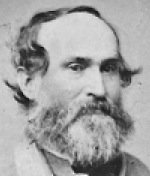
I was greatly impressed by the loyalty of his language, and by the feeling manifested, and on asking who the speaker was was told that it was Lieutenant or Captain Early, of Franklin county, a graduate of West Point, who had served with credit in Florida and Mexico. This tender-hearted Union man, who wept as he apostrophised the flag, was the same General Jubal Early, of Bull Run, Gettysburg, and the Shenandoah Valley, one of the bitterest enemies the Union had during the war, and who died unreconciled.
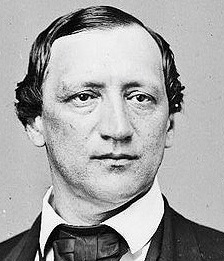
One of the most outspoken of the Union men was John S. Carlile, from Harrison county. I had made his acquaintance some years previous in the Western part of the State – a bright, able man. He fought Wise and Morton strenuously. Being a Democrat, he was very obnoxious to the secessionists. (Edwards, William H. (July, 1902). “A Bit of History.” The West Virginia
Historical Magazine Quarterly. Print.)}
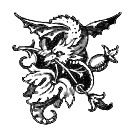
ACT IV – FIRST FLAMES OF WAR
ACT IV – SCENE I – FORT SUMTER IS FIRED UPON, RICHMOND TEMPERS FLARE.

April 12 – Friday, Fort Sumter, SC:
At 4:30 A.M. . . . the country’s collective sigh of relief suddenly became a sharp gasp of distress. The Confederate forces at Charleston, South Carolina fired on the Union garrison at Fort Sumter. (Perks, p. 81).
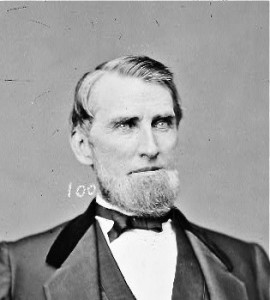
Mr. Willey, member from Monongalia, some years afterward wrote this graphic description of the crisis:

During the progress of the bombardment of Fort Sumter, the excitement in Richmond and in the Convention was intense. Bonfires and illuminations blazed high in the streets and public squares; the national flag was torn from its place over the dome of the capitol and trampled under the feet of an infuriated mob. Stores and public places were closed and the populace sought the streets to give vent to their feelings. Strangers rushed to the city from all parts of the State and helped to swell the throngs. Many who had come in advance of the call to meet on the 16th of April assembled together in a large hall and sat with closed doors. No ingress could be obtained to the sessions of this mysterious body. (Hall, p. 183)
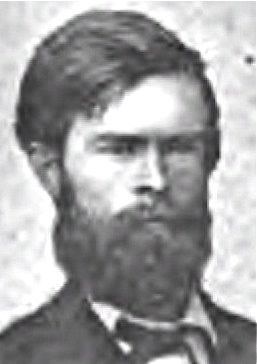
Delegate George McC Porter said later:
After the attack on Sumter, the mob in Richmond seized the artillery. They ran howling through the streets. They broke through the doors of your State house. They tore down the stars and stripes and hoisted in its place the flag of the Confederate States. (To an audience in Wheeling, May 5th; Hall, p. 183)
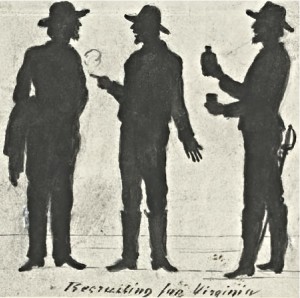
Delegate Marshall M. Dent, member from Monongalia, wrote to his paper, the Morgantown Star:
This afternoon a crowd assembled at the old market and taking down a Union flag which had been floating there for many days, hoisted in its stead, amidst the cheers of the crowd, the rattlesnake flag. Speeches were made by several persons, among whom was Charles Irving, Mr. Clemens’ second in the duel with Wise. In the course of his remarks Irving impressed upon the people that resistance was not enough; that the true policy was to drive the Convention out of the city at the point of the bayonet. Scarcely had Mr. Irving uttered these words when the crowd shouted “That’s right! That’s right! Drive them out!” and these cries were followed by deafening cheers. (Hall, p. 161).
April 12 – Friday, Richmond, VA: John B. Jones, Wise’s clerk, arrives.
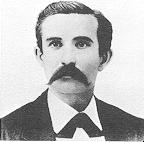
{Arrived at the Exchange Hotel, Richmond. A storm rages above, and below in the minds of men; but the commotion of the elements above attracts less attention than the tempest of excitement agitating the human breast. The news-boys are rushing in all directions with extras announcing the bombardment of Fort Sumter! This is the irrevocable blow! Every reflecting mind here should know that the only alternatives now are successful revolution or abject subjugation. But they do not lack for the want of information of the state of public sentiment in the North. It is in vain that the laggards are assured by persons just from the North, that the Republican leaders now composing the cabinet at Washington were prepared to hail the event at Charleston as the most auspicious that could have Happened for the accomplishment of their designs; and that their purpose is the extinction of slavery, at least in the border States; the confiscation of the estates of rebels to reimburse the Federal Government for the expenses of the war which had been deliberately resolved on; and to gratify the cupidity of the “Wide-Awakes,” and to give employment to foreign mercenaries.
But it is not doubtful which course the current of feeling is rapidly taking. Even in this hitherto Union city, secession demonstrations are prevalent; and the very men who two days ago upheld Gov. Letcher in his
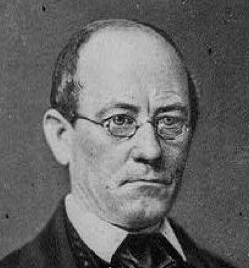
conservatism, are now stricken dumb amid the popular clamor for immediate action. I am now resolved to remain in Richmond for a season.
. . . (Jones wrote later on Monday, April 22nd) Perhaps the occurrence which has attracted most attention is the raising of the Southern flag on the capitol. It was hailed with the most deafening shouts of applause. But at a quiet hour of the night, the governor had it taken down, for the Convention had not yet passed the ordinance of secession. Yet the stars and stripes did not float in its stead; it was replaced by the flag of Virginia. (Jones, Vol. 1 pp. 13-26)}
April 13 – Saturday, Richmond, VA: Sumter Falls.
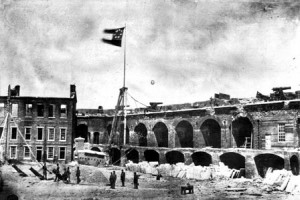
{Fort Sumter capitulated April 13th to the delight of the majority of that convention. All the week Richmond had been filling up with long-haired, wild-eyed strangers, many of them said to be Knights of the Golden Circle, brought in for the purpose of influencing the convention and public opinion.
On Sunday (April 14) I took a walk to the suburbs with Mr. Caperton, and he expressed himself as being greatly disturbed at the situation. He said that messengers were coming in from his county and from Greenbrier and the adjoining counties, and the country was reported as wild for secession. He did not believe that the contagion could be resisted. He thought that if Virginia cast her lot with the Southern States, it would make for peace. The government would not dare to attack the Confederacy, with the addition of Virginia, and in time, through the good officers of his State, the two sections. would be brought together again. I suggested that he use his great influence in his district, and that Mr. Price should do the same, and resist this ruinous action of the convention before the people, as Judge Summers and Colonel Ben. Smith and Lewis Ruffner would do in Kanawha; and I assured him that it was a great mistake to assume that the North would not fight for the Union.
A committee, or rather an embassy, had recently been sent to Washington to urge non-action. One of its members was the Honorable Ballard Preston, a particular friends of Mr. Caperton, and who had great influence with him. They returned while I was in the city, having failed to get the least concession. The depression of the Union men was deep and apparent. It seemed to them that every effort for peace was pre-destined to be a failure. They had hoped much from this embassy. Things were going to suit the other side, however. The ambassadors were to report to the public on Monday afternoon, at one of the churches, and I went thither, but was turned back at the door, as a stranger. (Edwards)}
April 15 – Monday, Washington, D.C.:
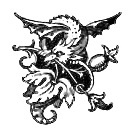
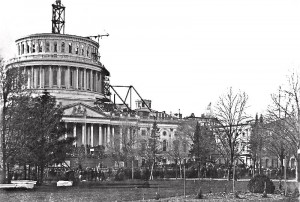
ACT IV – SCENE II – LINCOLN ISSUED A CALL FOR VOLUNTEERS – THE SAME DAY HE MET THE CONVENTION’S THREE EMISSARIES.
President Abraham Lincoln issued a call for 75,000 three-month volunteers, to include 2340 men from Virginia, to put down the “insurrection” in South Carolina. (Perks, p. 81).
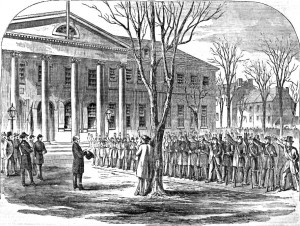
{On April 15, 1861. the President issued his proclamation calling for 75,000 militia for the purpose of suppressing insurrection and “to cause the laws to be duly executed.” This proclamation was in terms as follows:
Whereas, the laws of the United States have been for Home time past and now are opposed and the execution thereof obstructed in the States of South Carolina, Georgia, Alabama, Florida, Mississippi, Louisiana, and Texas by combinations too powerful to be suppressed by the ordinary course of judicial proceedings or by the powers vested in the marshals by law:
Now, therefore, I, Abraham Lincoln, President of the United States, in virtue of the power in me vested by the Constitution and the laws, have thought fit to call forth, and hereby do call forth, the militia of the several States of the Union, to the aggregate number of “5,000, in order to suppress said combinations and to cause the laws to be duly executed.
The details of this object will lie immediately communicated to the State authorities through the War Department.
I appeal to all loyal citizens to favor, facilitate, and aid this effort to maintain the honor, the integrity, and the existence of our national Union and the perpetuity of popular government, and to redress wrongs already long enough endured.
I deem it proper to say that the first service assigned to the forces hereby called forth will probably be to repossess the forts, places, and property which have been seized from the Union, and in every event the utmost care will be observed consistently with the objects aforesaid to avoid any devastation, any destruction of or interference with property, or any disturbance of peaceful citizens in any part of the country.
And I hereby command the persons composing the combinations aforesaid to disperse and retire peaceably to their respective abodes within twenty days from date.
Deeming that the present condition of public affairs presents an extraordinary occasion, I do hereby, in virtue of the power in me vested by the Constitution, convene both Houses of Congress.
Senators and Representatives are therefore summoned to assemble at their respective Chambers at 12 o’clock noon on Thursday, the 4th day of July next, then and there to consider and determine such measures as in their wisdom the public safety and interest may seem to demand.
In witness whereof I have hereunto set my hand and caused the seal of the United States to be affixed.
Done at the city of Washington this 15th day of April, in the year of our Lord 1861, and of the independence of the United States the eighty-fifth.

Abraham Lincoln.
By the President:
William H. Seward,
Secretary of State.
On the date of this proclamation the Secretary of War addressed letters to the governors of twenty-four States, including one to the governor of Missouri . . .(Official Records of the Union and Confederate Armies, Series III, Vol. I, pp. 67,68.)}
WISE’S FIRST RESPONSE TO LINCOLN’S CALL FOR TROOPS (ACCORDING TO HIS CLERK).
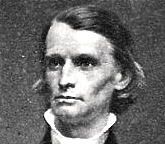
{APRIL 22nd. – Early a few mornings since, I called on (ex-ED) Gov. Wise, and informed him that Lincoln had called out 70,000 men. He opened his eyes very widely and said, emphatically, “I don’t believe it.” The greatest statesmen of the South have no conception of the real purposes of the men now in power in the United States. They cannot be made to believe that the Government at Washington are going to wage war immediately. But when I placed the President’s proclamation in his hand, he read it with deep emotion, and uttered a fierce “Hah!” Nevertheless, when I told him that these 70,000 were designed to be merely the videttes and outposts of an army of 700,000, he was quite incredulous. He had not witnessed the Wide-Awake gatherings the preceding fall, as I had done, and listened to the pledges they made to subjugate the South, free the negroes, and hang Gov. Wise. I next told him they would blockade our ports, and endeavor to cut off our supplies. To this he uttered a most positive negative. He said it would be contrary to the laws of nations, as had been decided often in the Courts of Admiralty, and would be moreover a violation of the Constitution. Of course I admitted all this; but maintained that such was the intention of the Washington Cabinet. Laws and Courts and Constitutions would not be impediments in the way of Yankees resolved upon our subjugation. Presuming upon their superior numbers, and under the pretext of saving the Union and annihilating slavery, they would invade us like the army-worm, which enters the green fields in countless numbers. The real object was to enjoy our soil and climate by means of confiscation. He poohed me into silence with an indignant frown. He had no idea that the Yankees would dare to enter upon such enterprises in the face of an enlightened world. But I know them better. And it will be found that they will learn how to fight, and will not be afraid to fight. (Jones, Vol. 1 pp. 25-26)}
{That day, 15th April, President Lincoln issued the call for 75,000 troops, of which Virginia was expected to furnish her quota. This added fresh fuel to the sufficiently hot fire. I went with a gentleman that evening to the Powhatan House,the headquarters of the extremists, to see what was going on.
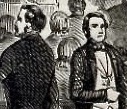
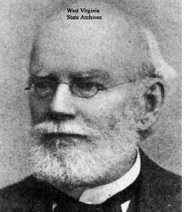
We found Mr. Morton enthroned in the lobby, haranguing, and evidently feeling extra good. Presently he addressed me personally: “Sir, if all my coal in Kanawha were diamonds, and the White Sulphur ran pearls, I would give the whole to have Virginia go out. Why, sir, in twenty years grass would be growing in the streets of New York, and Norfolk would be the bigger city.” That was at the time a common hallucination, that war would ruin the North and build up the South, for “Cotton was King.” In the summer of 1862, the story goes that General Early was leading his weary troops through Morton’s plantation, when he encountered his fellow member of the convention: “Well, Uncle Jerry, what do you think now of the compromises of the Constitution?” that having been a pet expression of his. The year after the war, I met Mr. Morton in Kanawha, and he remarked that he was broken “as fine as powder.” I was sorry, for he was really a fine old gentleman, who was born for a better fate. I had gone to bed that night when Mr. Caperton came to my room and advised me to leave town in the morning, else there was no telling when I might be able to get away. He said that some fellows had just been through the house carrying a rope, in search of Carlile. That gentleman probably had notice, for he had already left. He walked a few miles up the Fredericksburg road and boarded the train in the morning. (Edwards)}
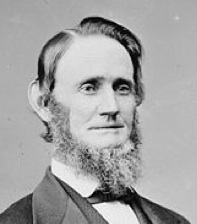
. . . a party of Secessionists met together at Richmond — a self-constituted convention — for the purpose of forcing this Convention to pass an ordinance of secession or of turning them out of doors and deposing Governor Letcher. And I believe that if it had not been for the fear of that body, the ordinance of secession could not have been passed. A large portion of the people of Virginia at that time were utterly opposed to the passage of an ordinance of secession. (John F. Lewis after the war before the Joint Committee on Reconstruction, quoted in Hall, p. 162)
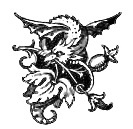
ACT IV – SCENE III – THE SECESSION CONVENTION GOES INTO THE FIRST SWORN-SECRET SESSION, ALLOWING FIERCE AND GUT-WRENCHING DEBATE.
April 16 – Tuesday, Richmond, VA: First Day of Secret Session
The Convention goes into secret session. The commissioners report on their conversation with President Lincoln: Mr. Randolph urges immediate defense measures, and secession, while Mr. Stuart advises against secession before Virginia has consulted the border states. The Governor communicates the call of the U. S. Secretary of War for Virginia militia. Mr. Preston submits an ordinance of secession. Mr. Scott speaks in favor of resistance, but proposes a referendum on secession. Members from western Virginia discuss the effect of secession on their section of the state. Other members continue the discussion of secession, with most of those speaking opposed to precipitate action.
{Mr. RANDOLPH, of Richmond city—
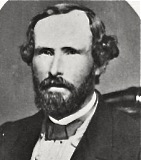
I desire, as far as possible, like the gentleman from Montgomery (Mr. PRESTON) to confine myself to clearly ascertained facts; but it will be impossible for me to avoid giving, to some extent, the impressions that I derive from the conversation with the President of the United States, and from facts that came to our knowledge within the City of Washington.
The President requested that his conversation would not be reported, and, as a matter of course, I shall not undertake to say what he said, inasmuch as I might mistake his language. But, I presume, it will be perfectly legitimate to state the impression which that conversation made upon me. The reason that he assigned for desiring that it should not be reported, as I understand, was that it might be misreported; and I shall not undertake, therefore, to state what he said. But I deem it my duty to-this-Convention, to state the impressions that conversation made upon me.
Mr. President, I believe, from all that I have heard, and can understand, said that we are in the beginning of the greatest war that has ever been waged upon this continent. That war will be conducted with the entire force of the Federal Government, and will, unquestionably, in the start, command the entire support of the Northern people. I believe, sir, that a warlike policy has been in part impressed upon the popular sentiment of the North; and, from what I now observe in the public press, I see no ground to hope that, at least, in the beginning of that war, there will be any serious division among them. I conferred yesterday with a gentleman who had just come from the North-west, and with other gentlemen just from the city of New York, and they all told me that where they travelled there, there was but one opinion, and that in favor of war.
Now, sir, what is the object of that war? It is ostensibly defensive-merely to re-possess certain forts and arsenals which have been seized by the Confederate States, and to collect the revenue. But can it be a defensive war? Can it be to re-possess Fort Sumter and the other forts seized by the Confederate States? Can you for a moment believe that they will be allowed to recover these back? There is no chance of it; and then will not a discretion be given to the commanders of the United States forces which will necessarily induce them to follow up the contest and to disperse the defending army? If so, there is an aggressive war at once. You may as well attempt to circumscribe a fire in a prairie as to attempt to confine a war to the neighborhood of the forts intended to be re-possessed. We see by the President’s proclamation that 75,000 men are to be called into action, and as we have every reason to believe that it is the wish of the administration that at least one-third of that number should be concentrated upon the frontier of Virginia and at the City of Washington, my own opinion is, that unless this State views this just now as a military question, and unless she considers military preparations as of the first and primary importance, we will be a subjugated people.
. . . I called at the War Department and got them to show me a list of the arms within the State belonging to the United States. I found that there were at Harper’s Ferry 48,000 Minie muskets and a much larger number of smooth bore muskets. It would be an easy matter to prevent the removal of those by breaking up the railroad track of the Baltimore and Ohio Rail Road and the question now is whether you will give up these arms to the enemy or keep them yourselves. . .
Let us get ready, not as a member of the Northern Confederacy; but let us detach ourselves from that Union, and throw the responsibility of the military operations upon the government of the Northern Confederacy, which will also have to bear the expense of the war. . . . Sir, the destiny of Virginia is committed now to our hands. We are sent here to advise the people. Don’t let us distract the people by submitting to them alternate propositions.}
ALEXANDER H. H. STUART

{The gentleman reminds me that he expressly said, that what was said in the interview referred to was under confidence between gentlemen. I know that the obligation existed. I speak of it as an obligation which I do not mean to violate.
But I may be permitted to say that I did not conceive that a good portion of that conversation should go without an answer. . . I stated to him (Lincoln), . . . that I thought he had fallen into a great error. I instanced, in the first place, the revenue law, and stated that he ought to remember that while he was under an obligation to enforce the law, the law itself provided agencies and instrumentalities by which they were to be enforced; and that it was as much his obligation to pursue the mode pointed out by the law, as it was to execute the law itself.
. . . I then stated to him that, as this machinery did not exist, his authority ceased with it. He could only execute the laws through this agency, and when this agency no longer existed he had no right to substitute others than those which the law itself provided. . . I then referred to the forts. I stated to him that I cherished the hope that he would find it consistent with his sense of duty to withdraw his troops, at least from those forts which were, strictly speaking, local; that he might find it consistent with his sense of official obligation to withdraw the troops from Fort Sumter, Fort Pickens, and any other local forts which had no great national functions to perform; but which were intended for the defence of the particular locality in which they were situated . . . I said to him that upon this subject his power was plenary; that, as Commander-in-chief of the Army and Navy of the United States, he had power to dispose of these forces as to him seemed most expedient . . . I reminded him of the fact that the Congress of the United States was the only agency through which a response could be obtained to that appeal. Now, I desire to say a few words more.* I confess, sir, that, like my friends who were associated with me, I regard the President’s answer as in the highest degree unsatisfactory. I regard it, while courteous in form, as almost hostile in intent. But I must confess further, that I was utterly unprepared for the developments which have taken place since. All the inferences which my mind could draw from the interview were directly at variance with these subsequent developments. While his policy was decidedly expressed, yet I understood him, from our official communications-and the general impressions left on my mind, favored that idea-as intending nothing like a general war,* nothing in the shape of a general system of hostilities. I understood his whole efforts to be limited to the special purpose of re-occupying the forts. While he said in his communication to us that he would, after the attack upon Fort Sumter, feel himself at liberty to recapture, if he could, that and other public property seized by the seceded States, he did not indicate any determination of purpose to do so. . . . I was so entirely taken by surprise by the appearance of the proclamation, that I did not for a moment believe that it was authentic. I believed that it was a sensation document, gotten up by some mischievous persons . . .
It seems proper, then, for us to decide in this emergency what we, as Virginians, are to do. There are three lines of policy that lay before us: One is to remain in the Union as we are. . . But there are two others. One is to secede immediately, and the other is to ask the co-operation of our sister States which have not yet seceded. . . Now, let us see what would be the effect if an Ordinance of Secession is adopted at this time.
. . . Virginia would stand alone between the Federal Government and the Confederate States of the South. She would be the battle ground. Her fields would be laid waste, and her citizens would become the victims of the conflict.
And, sir, what is our state of preparation? Where is our ordnance? Where is our musketry? Where are our rifles? Where, in fact, are any of the munitions of war, which are indispensable for our security? Sir, you may talk about courage, and you may talk about chivalry; but I say it is not true courage and true chivalry to rush into such an unequal contest as that. . . . But, sir, all must concur that we are not in a condition to go to war, and I say that it is the part of common prudence, common sense and humanity, that we should not engage in war until we shall have prepared ourselves for the conflict.
My friend over the way, from the city of Richmond (Mr. RANDOLPH) has suggested the idea of the capture of the Navy Yard at Gosport, and of the Armory at Harper’s Ferry. Let me call his attention, and that of the Convention, to the relations which we now bear to the Federal Government.
. . . But, sir, as wise, sagacious statesmen, we should not lose sight of these facts, and that before we take this fearful step- for fearful it is, sir, in every aspect in which we can view it – we should pause and ponder well.}
Sources at the end of Part 3
